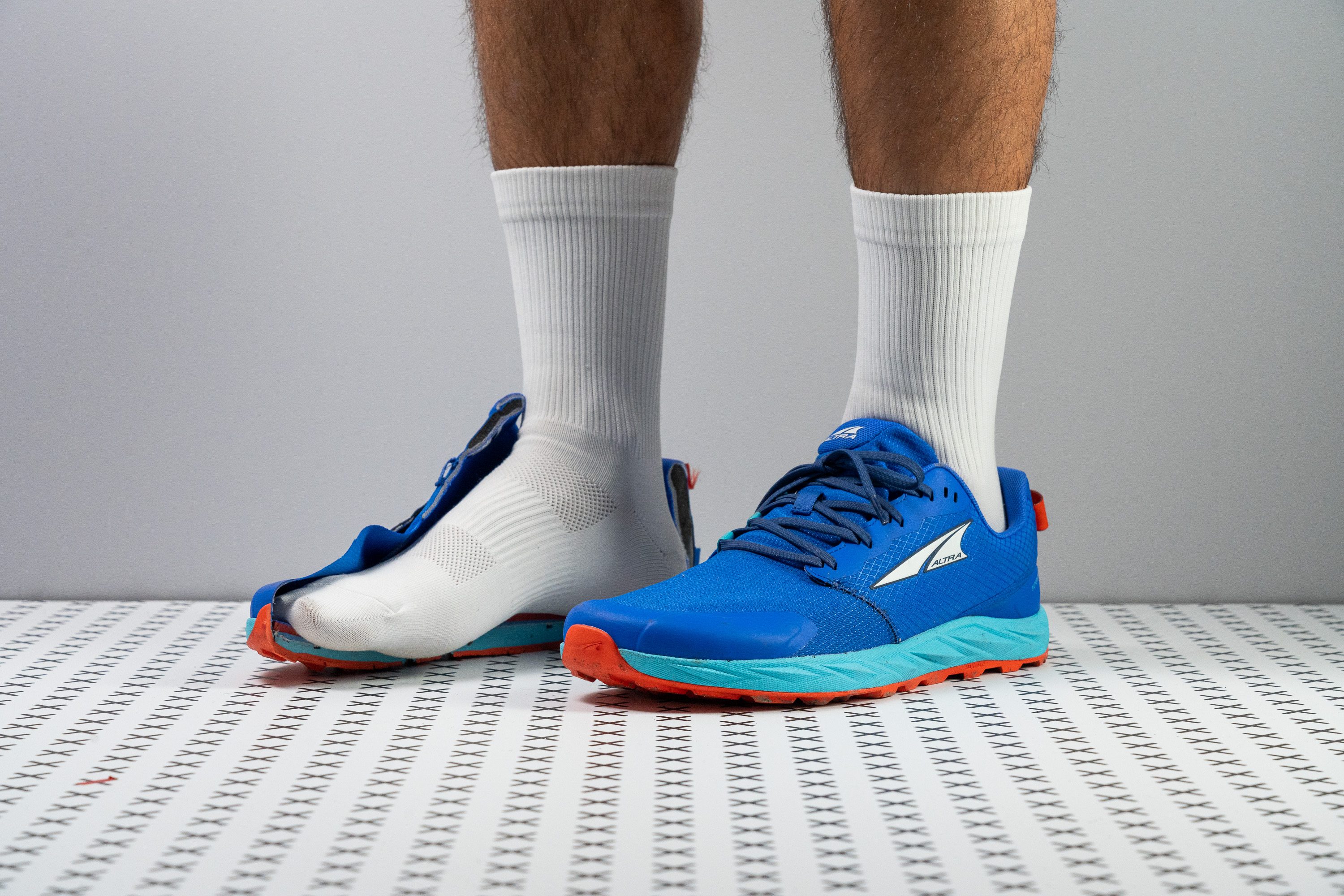Our verdict
- Top pick in best running shoes for spartan race (OCR) (2024)
Pros
- Exceptional ground feel for a more connected run
- Nimble and quick
- Excellent breathability
- Upper and tongue designed for maximum comfort
- Durable outsole with reliable grip
- Remarkable stability
- Comfortable for all-day wear
- Reasonably priced
Cons
- Lacks a rock plate
- Not ideal for long distances
- The upper could be more durable
Audience verdict
Comparison
The most similar running shoes compared
+ + Add a shoe | |||||
|---|---|---|---|---|---|
| Audience score | 77 Decent! | 82 Good! | 80 Good! | 81 Good! | |
| Price | £120 | £110 | £135 | £115 | |
| Trail terrain | LightModerate | Light | LightModerate | Light | |
| Shock absorption | - | Low | Moderate | - | |
| Energy return | - | Low | Low | - | |
| Traction | - | High | - | - | |
| Arch support | Neutral | Neutral | Neutral | Neutral | |
| Weight lab Weight brand | 9.6 oz / 272g 9.1 oz / 258g | 8.3 oz / 235g 9.3 oz / 263g | 9.5 oz / 269g 9.8 oz / 277g | 9.2 oz / 261g 10.7 oz / 303g | |
| Lightweight | ✗ | ✓ | ✗ | ✗ | |
| Drop lab Drop brand | 0.1 mm 0.0 mm | 0.6 mm 0.0 mm | -0.1 mm 0.0 mm | 0.6 mm 0.0 mm | |
| Strike pattern | Mid/forefoot | Mid/forefoot | Mid/forefoot | Mid/forefoot | |
| Size | Slightly small | - | Half size small | Slightly small | |
| Midsole softness | Balanced | Balanced | Balanced | Balanced | |
| Difference in midsole softness in cold | Normal | Small | Small | Normal | |
| Toebox durability | Very bad | Decent | Good | Decent | |
| Heel padding durability | Decent | Good | Decent | Bad | |
| Outsole durability | Good | Good | Good | Bad | |
| Breathability | Breathable | Moderate | Moderate | Warm | |
| Width / fit | Medium | Medium | Wide | Medium | |
| Toebox width | Wide | Wide | Wide | Wide | |
| Stiffness | Stiff | Flexible | Stiff | Stiff | |
| Torsional rigidity | Moderate | Flexible | Stiff | Moderate | |
| Heel counter stiffness | Flexible | Flexible | Moderate | Flexible | |
| Lug depth | 3.3 mm | 3.5 mm | 3.0 mm | 1.5 mm | |
| Heel stack lab Heel stack brand | 22.1 mm 20.5 mm | 20.6 mm 21.0 mm | 28.6 mm 29.0 mm | 23.8 mm 27.0 mm | |
| Forefoot lab Forefoot brand | 22.0 mm 20.5 mm | 20.0 mm 21.0 mm | 28.7 mm 29.0 mm | 23.2 mm 27.0 mm | |
| Widths available | Normal | Normal | Normal | Normal | |
| Season | SummerAll seasons | All seasons | All seasons | All seasons | |
| Removable insole | ✓ | ✓ | ✓ | ✓ | |
| Orthotic friendly | ✓ | ✓ | ✓ | ✓ | |
| Ranking | #642 Bottom 6% | #291 Bottom 24% | #321 Bottom 16% | #314 Bottom 18% | |
| Popularity | #531 Bottom 22% | #271 Bottom 29% | #146 Top 39% | #283 Bottom 26% |
Who should buy
We highly recommend the Altra Superior 6 for:
- Altra fans looking for a low-profile trail runner that offers a natural, ground-connected feel.
- Those seeking a trail shoe versatile enough to smoothly navigate sharp turns and adapt to varied terrains.
- Runners who value a flexible, zero-drop design and need a shoe that's equally great at hiking and walking.
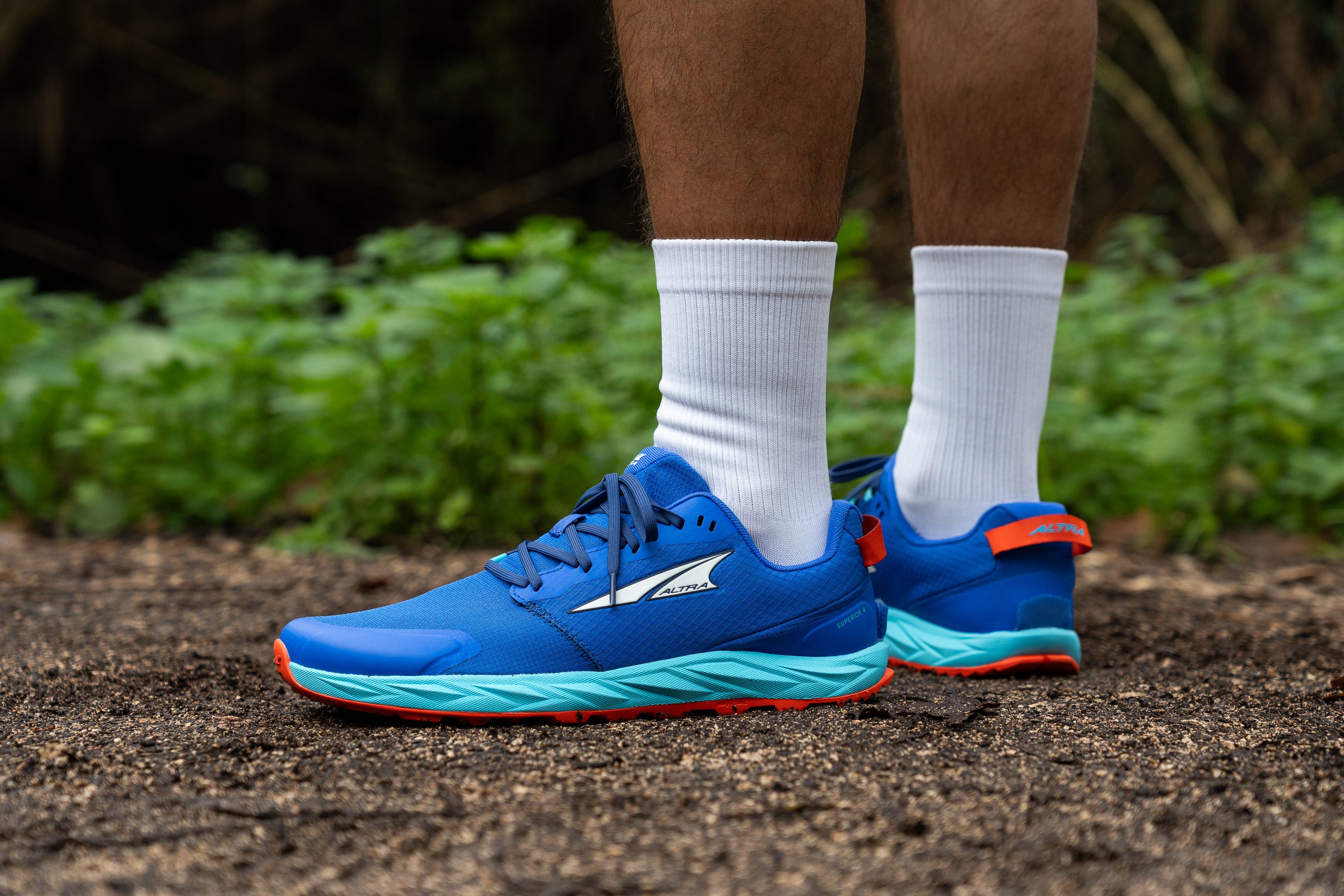
Who should NOT buy
We discovered the Altra Superior 6 has a minimal stack height of just 22.0 mm for both the heel and forefoot, which we don't recommend for runners seeking underfoot cushioning, especially for longer distances.
For those enchanted by the allure of zero-drop shoes but craving more cushion, the Altra Olympus 5 is a better pick, boasting a Vibram outsole for an added bonus.
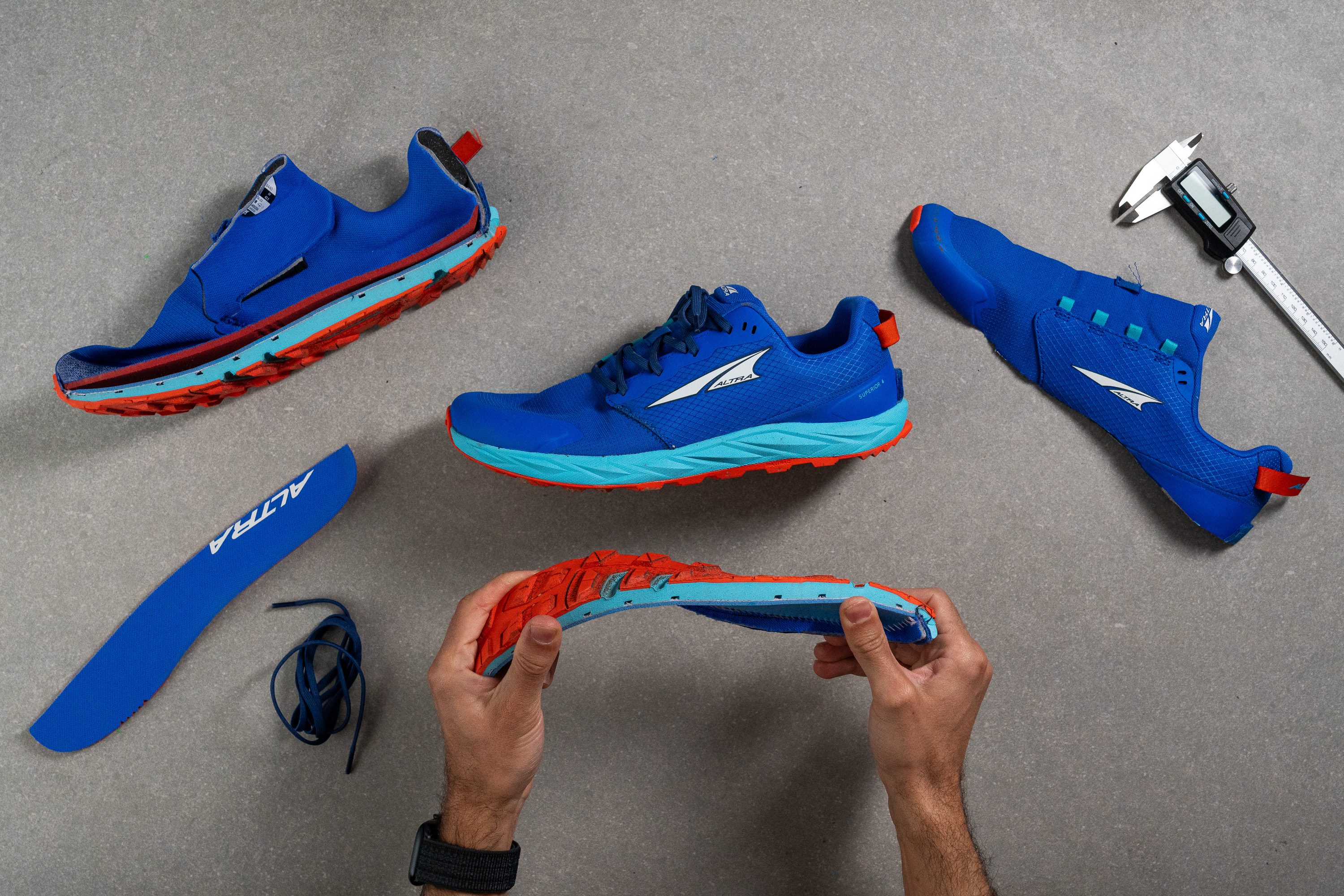
Furthermore, we believe the Superior 6 may not satisfy those yearning for a softer ride, as its cushioning leans towards the firmer side. If a more plush, yet low-drop shoe is what you're after, we recommend exploring the Hoka Speedgoat 5 or the Saucony Peregrine 13 as better choices based on our lab tests.
Cushioning
Heel stack
And here's the proof of the low profile that we just mentioned before.
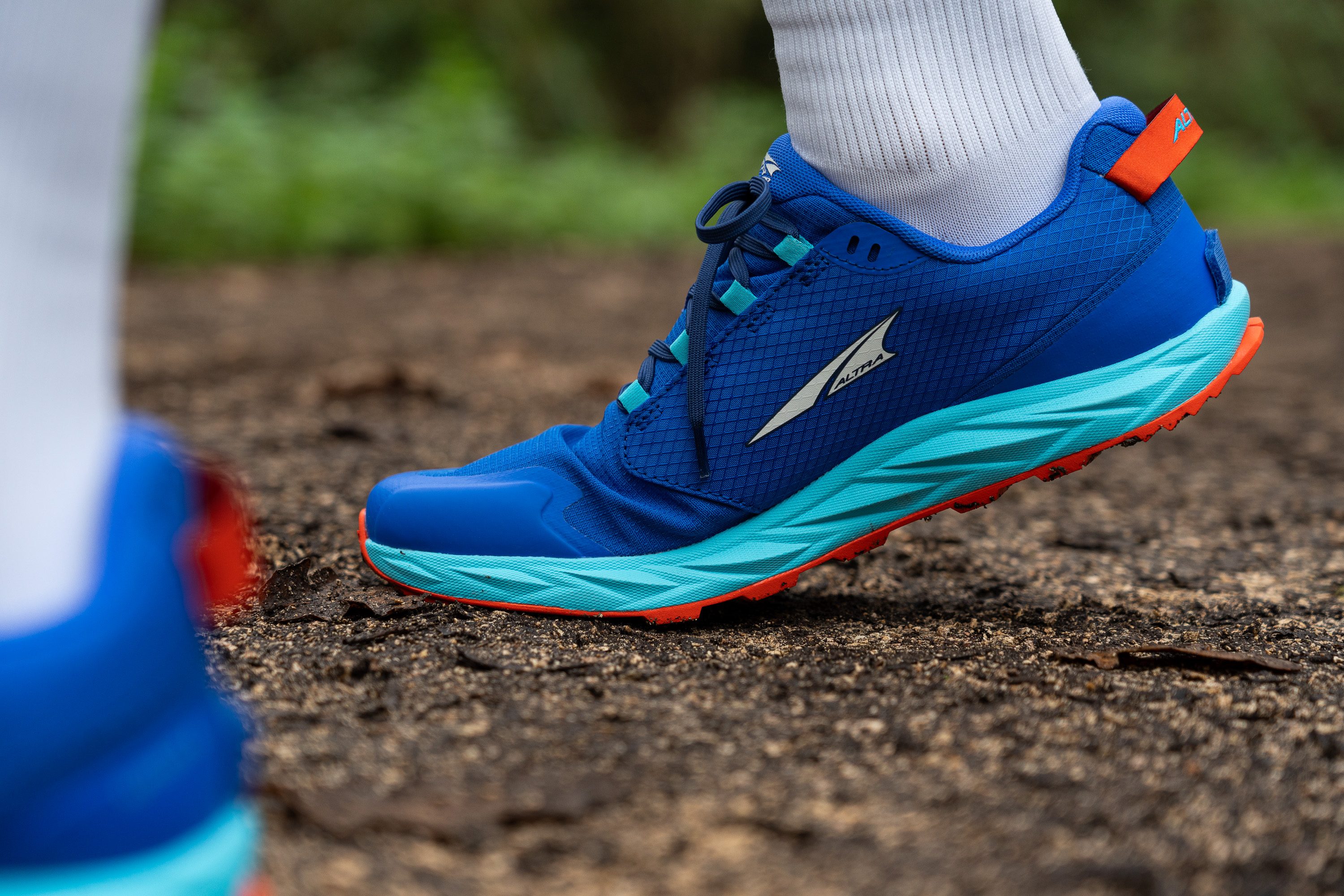
At only 22.1 mm in the heel, this is indeed a thin shoe that caters to trail runners that favour agility and being connected to the ground.
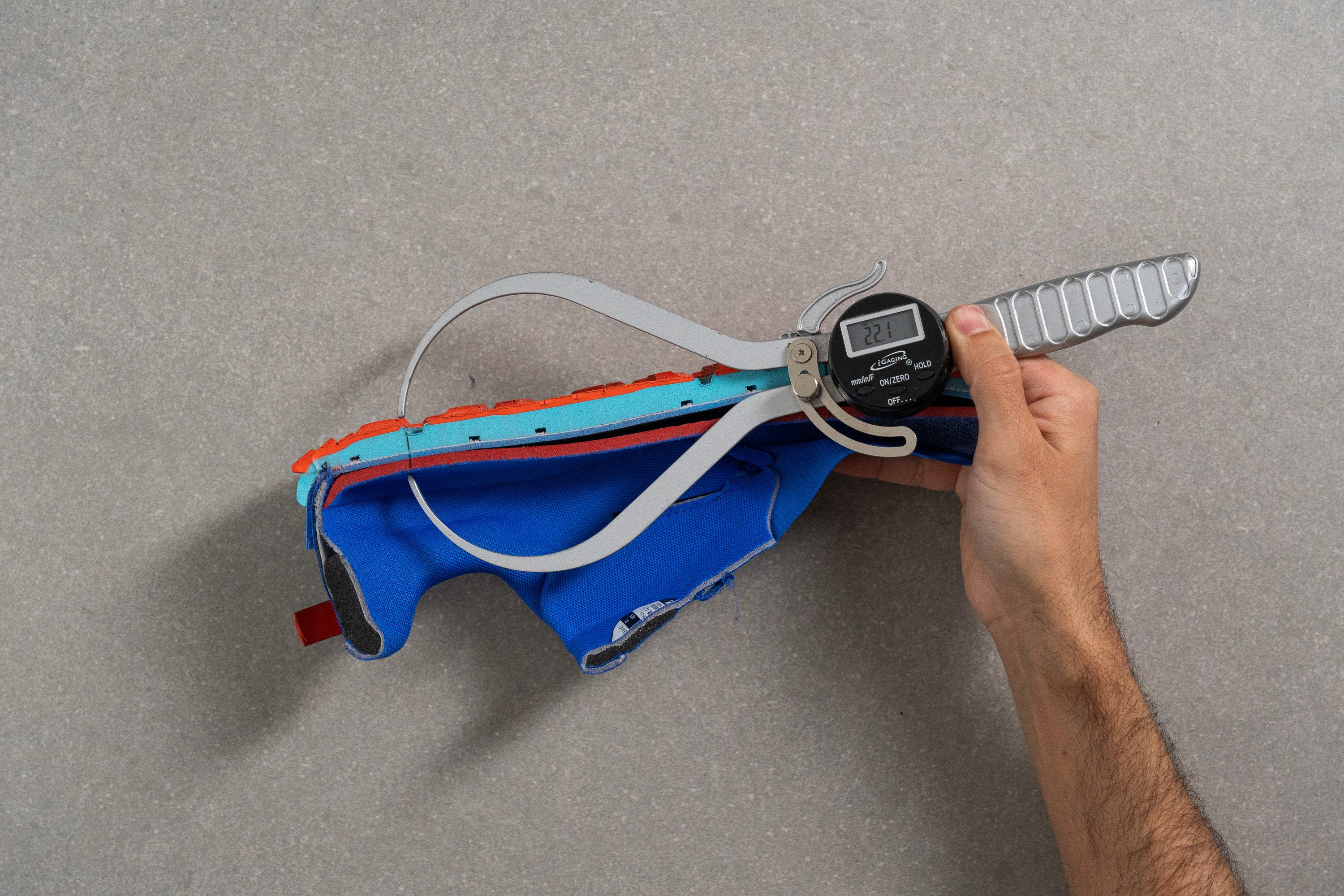
| Superior 6 | 22.1 mm |
| Average | 32.6 mm |
Forefoot stack
In the forefoot, we discovered a stack height of 22.0 mm, just what we expected from the brand best known for embracing the zero-drop philosophy.
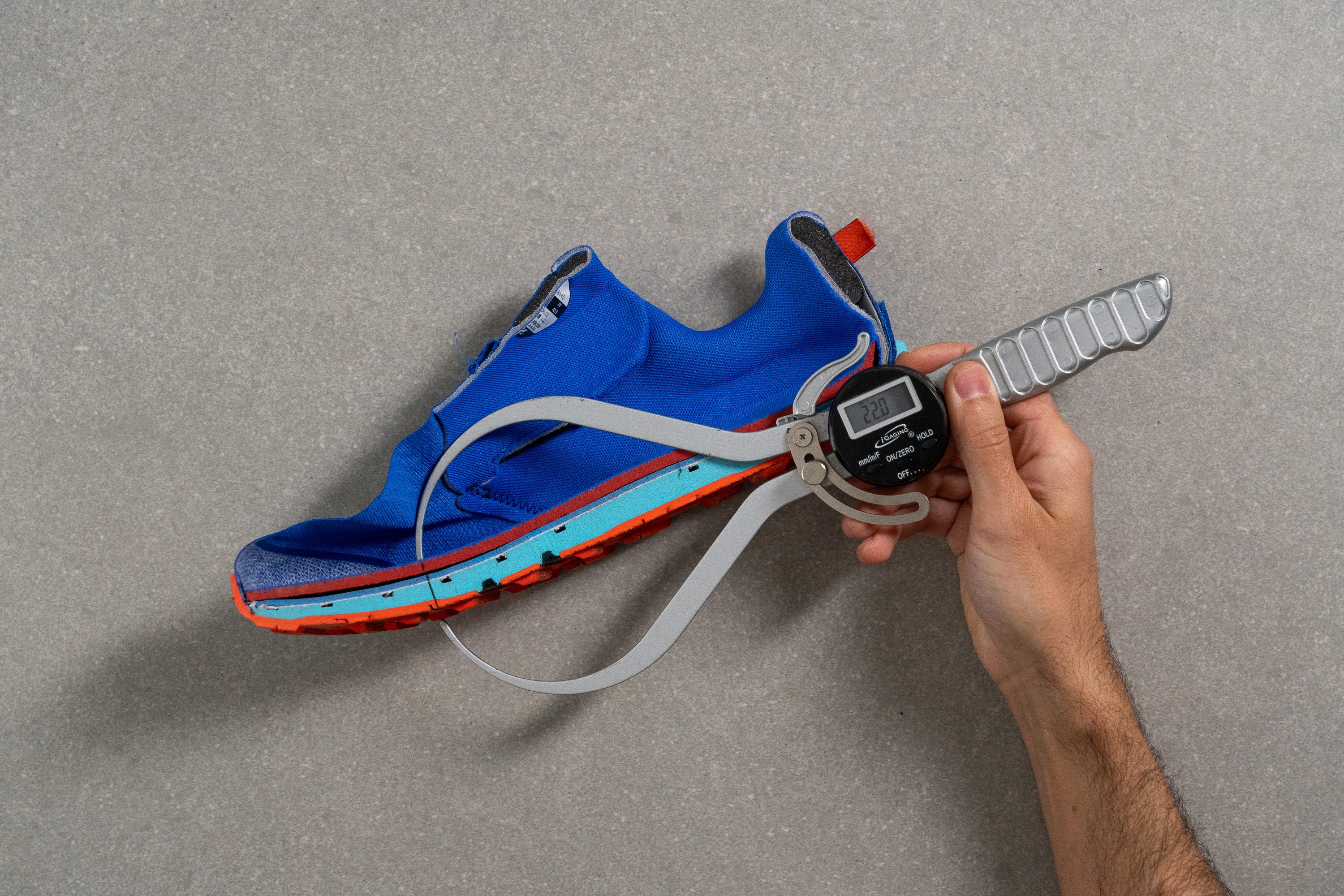
| Superior 6 | 22.0 mm |
| Average | 25.1 mm |
Drop
The minimal, 0.1-mm difference between the forefoot and heel is a huge win for those in pursuit of the ultimate zero-drop trail running experience.
It's not uncommon for the actual drop to deviate from what brands advertise, but in this case, it aligns almost perfectly.
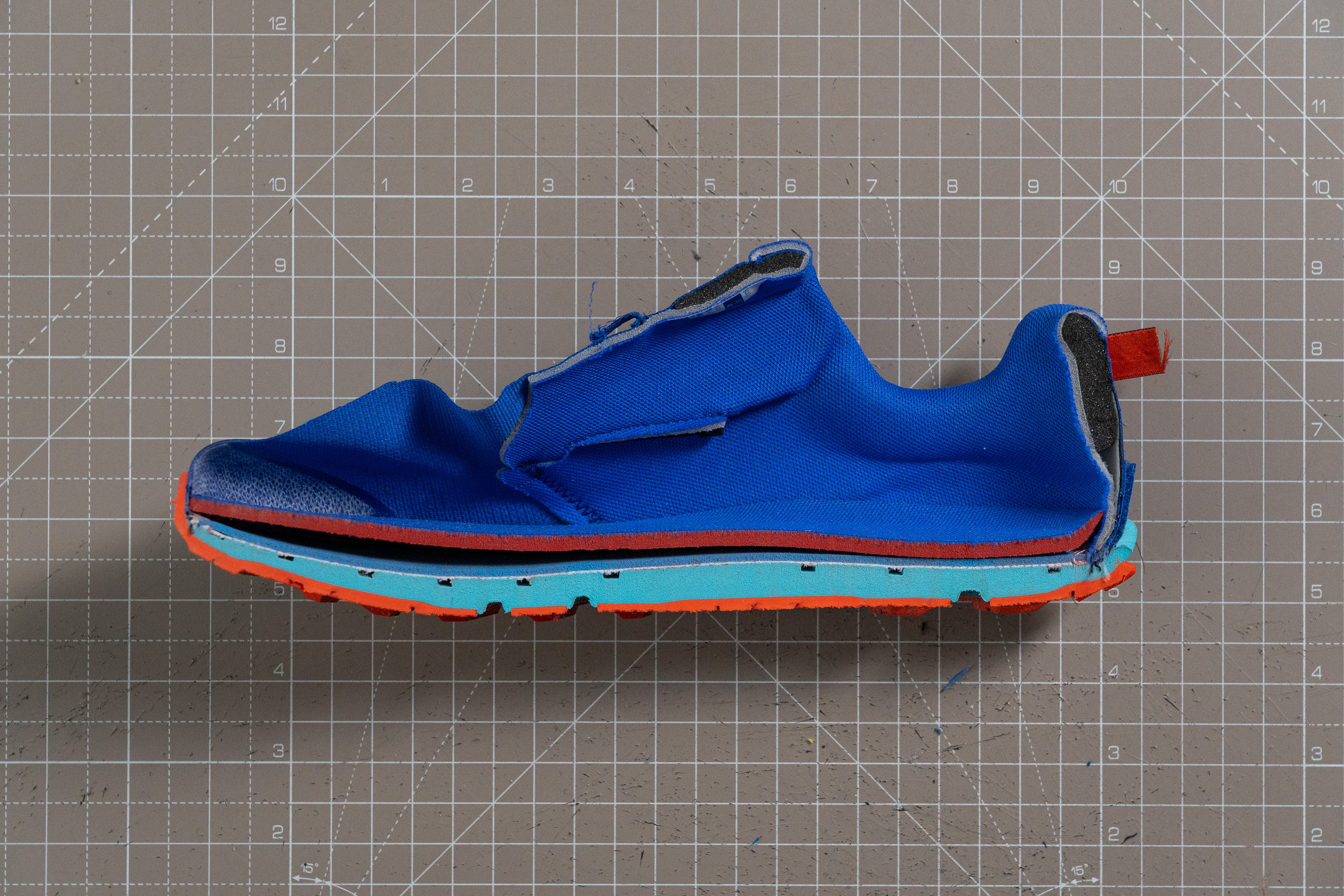
| Superior 6 | 0.1 mm |
| Average | 7.6 mm |
Midsole softness
The midsole definitely has a firm feel from the Quantic foam, which is what we anticipate from an Altra, especially in a low-profile shoe like the Superior. If it were any softer, the shoe would bottom out with every step, which would be problematic.
This is particularly true since the Superior, for the first time in the series, doesn't include the StoneGuard insert. Without this optional protection, a softer foam would make for a potentially unpleasant experience, allowing rocks to press uncomfortably against your metatarsals with each stride.
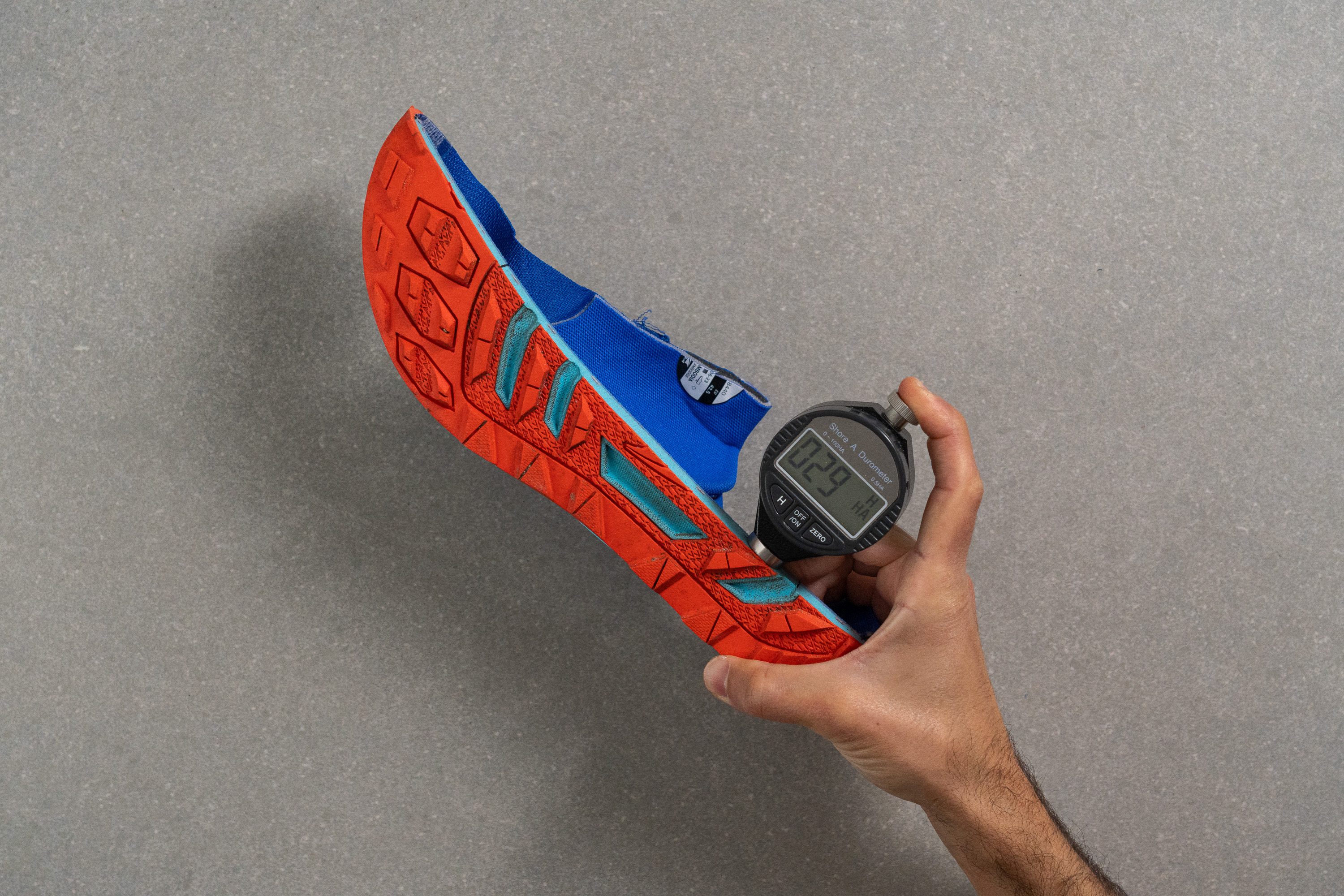
| Superior 6 | 29.1 HA |
| Average | 22.0 HA |
Size and fit
Size
Altra Superior 6 fits slightly small (57 votes).
Internal length
| Superior 6 | 269.0 mm |
| Average | 269.0 mm |
Width / Fit
The upper is a crucial component of every Altra shoe, with fans of the brand expecting a spacious and comfortable fit. So, does the Superior 6 meet these expectations?
While the widest part of the upper may not feel exceptionally spacious for this brand, after our hands-on experience, we believe it's certainly adequate for most feet.
Measuring the shoe's gel mould between the big toe and the pinkie, our calliper returned 97.5 mm. This moderate width is to be expected from the shoe's Standard FootShape fit which is not as roomy as the Original fit.
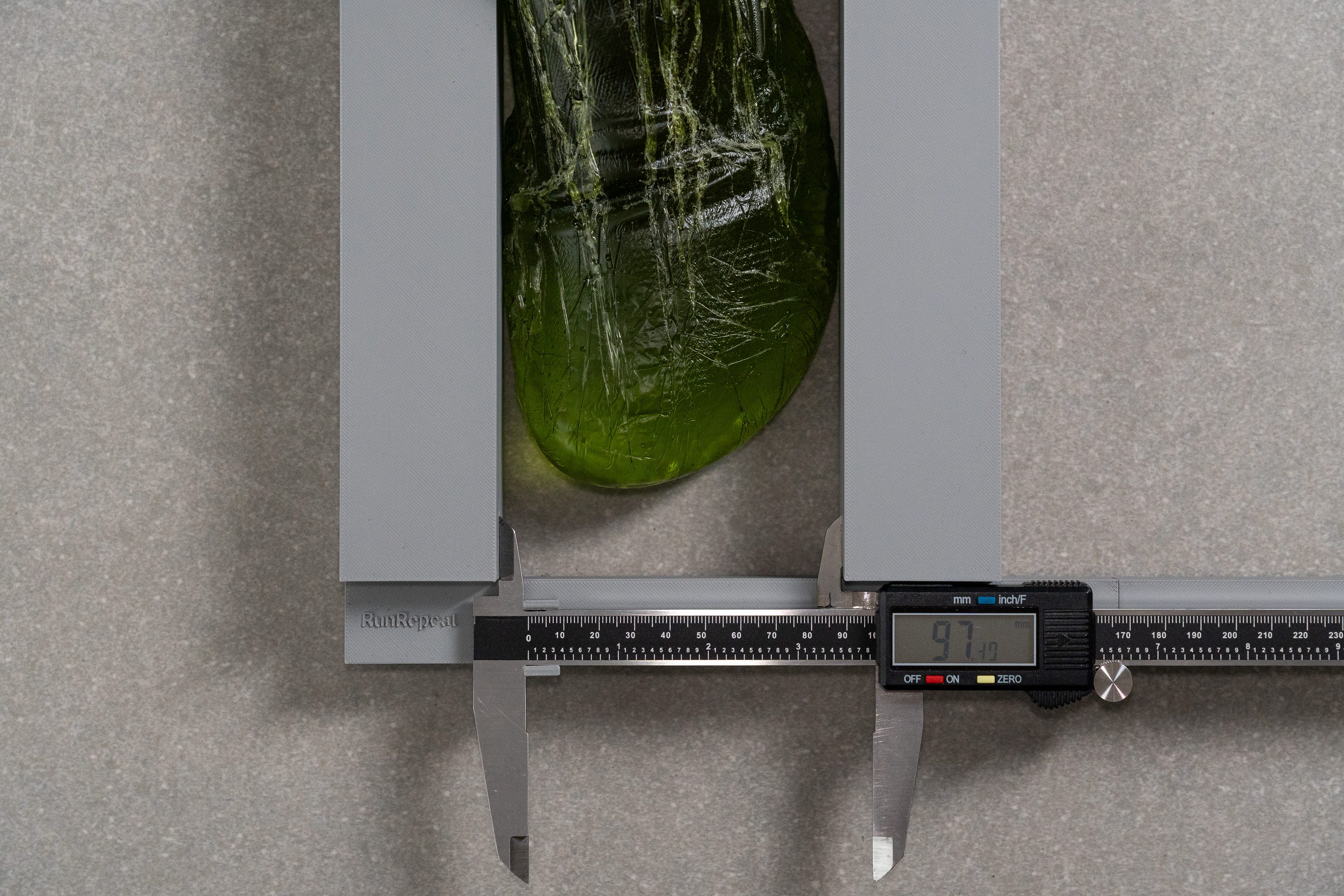
| Superior 6 | 97.5 mm |
| Average | 95.6 mm |
Toebox width
However, it's in the toe area where every Altra truly shines, thanks to their unique, Footshape toeboxes.
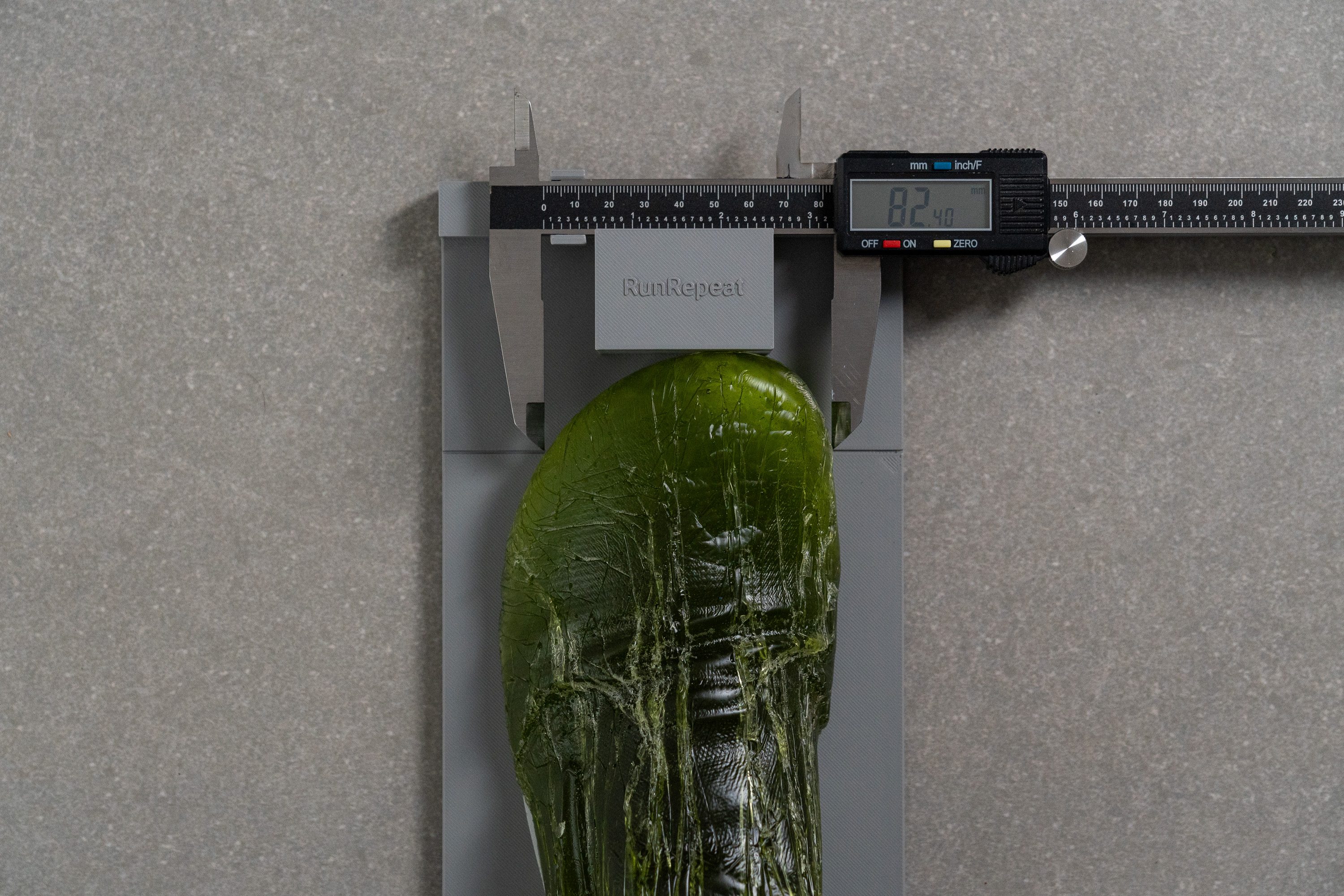
This is why the measurement we took in the big toe area showed an impressive 82.4 mm, which is absolutely astonishing when compared to trail shoes from other brands.
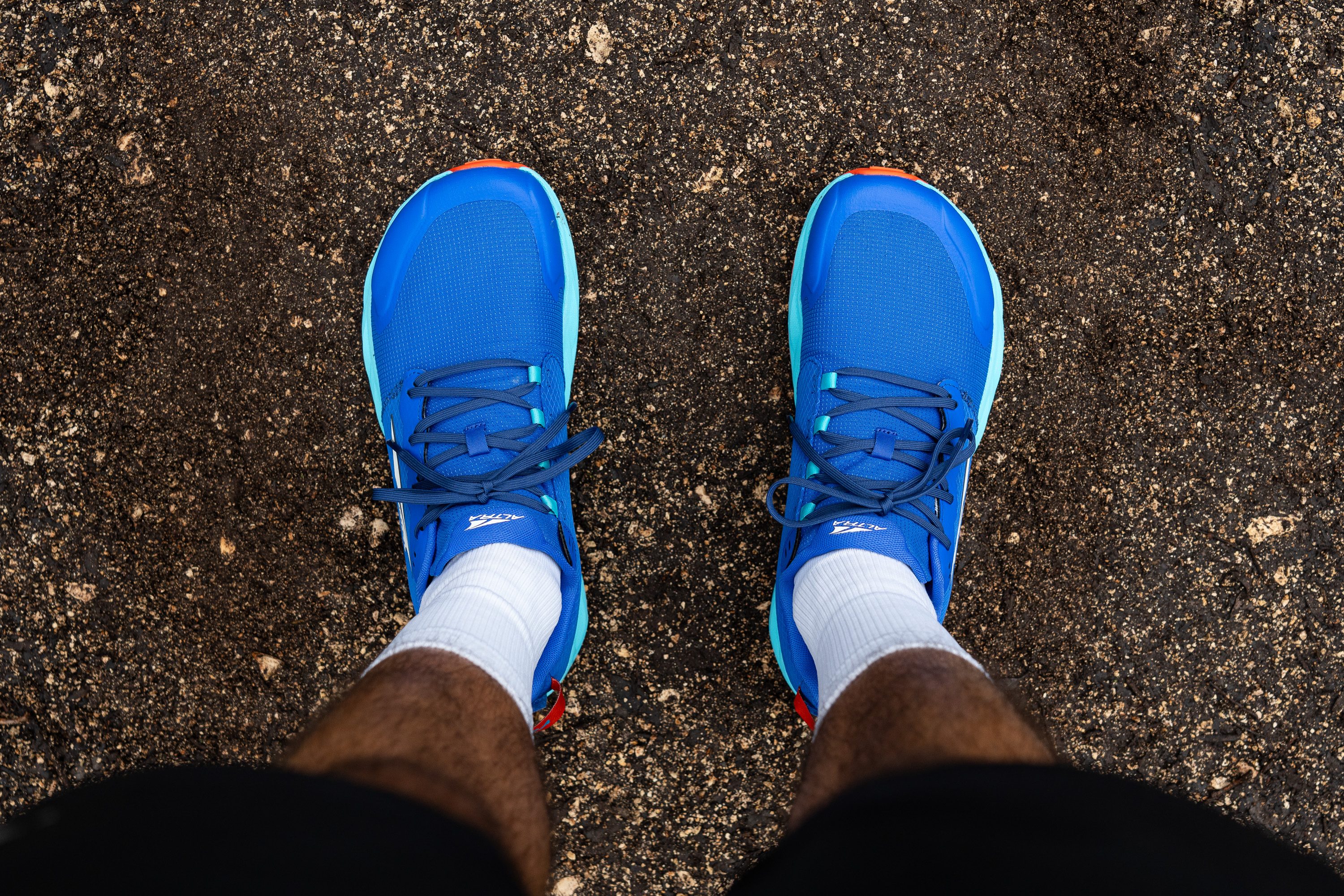
| Superior 6 | 82.4 mm |
| Average | 74.6 mm |
Toebox height
The shoe's vertical space, on the other hand, showed a moderate calliper reading of 24.9 mm. Not necessarily shallow but pretty low to the toes to maintain a close-fitting experience.
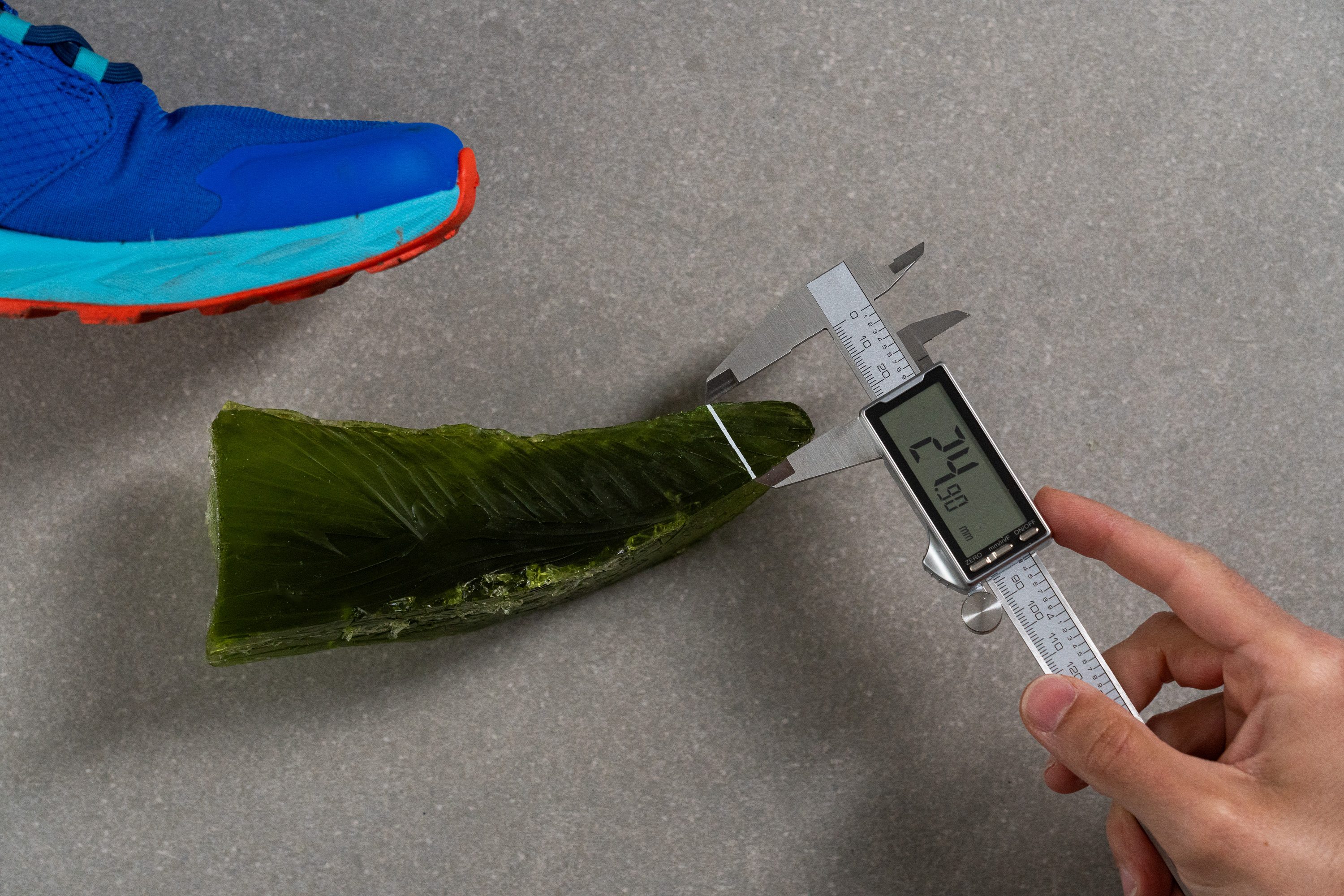
| Superior 6 | 24.9 mm |
| Average | 27.0 mm |
Traction / Grip
Lug depth
Turning our attention back to the outsole, it's time for us in the lab to measure the lugs. The Superior features 3.6-mm lugs designed to perform well on various terrains, particularly excelling on easy trails, gravel paths, and fire roads.
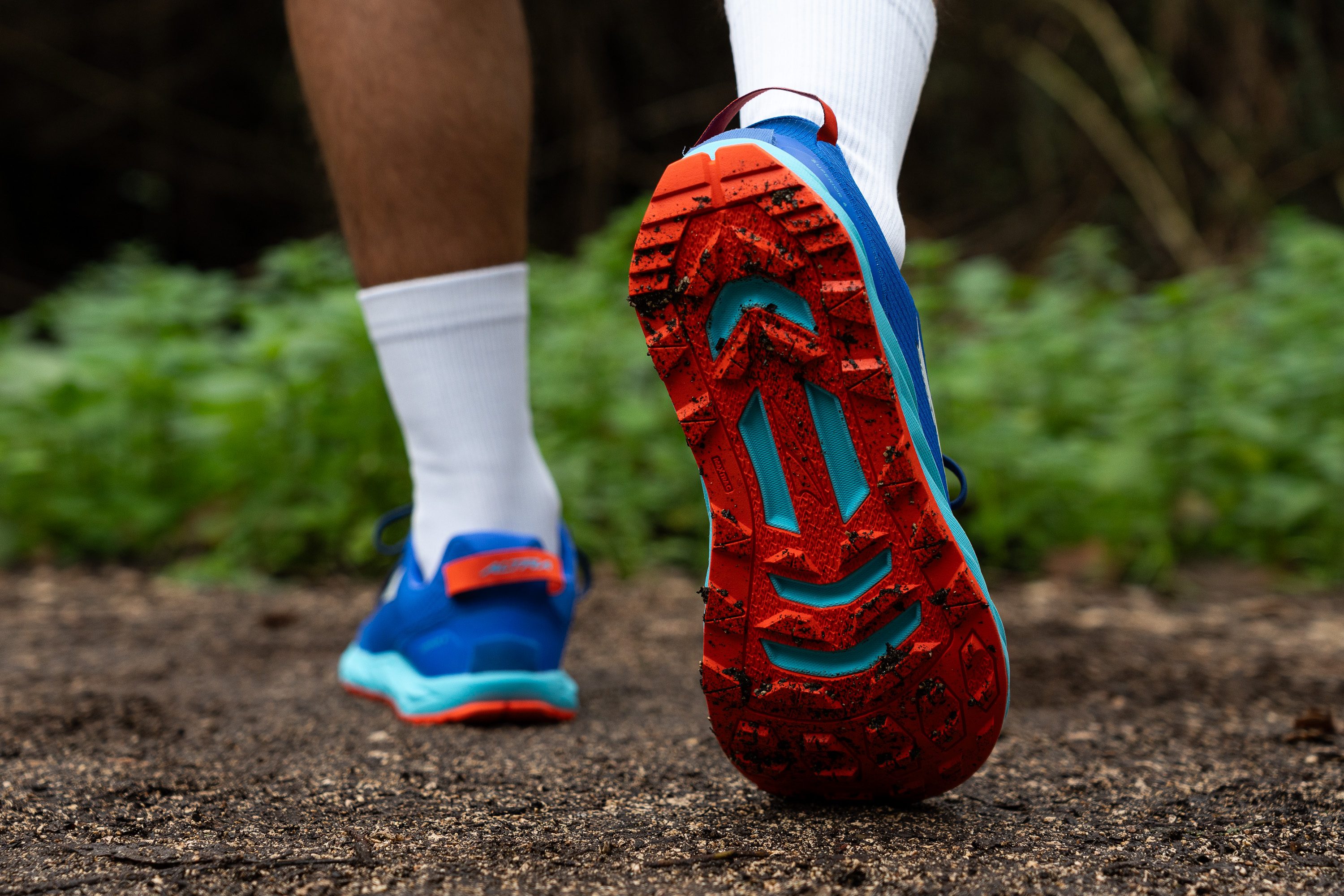
However, for muddy trails, we believe the lugs might be a bit short, though they should suffice for occasional use.
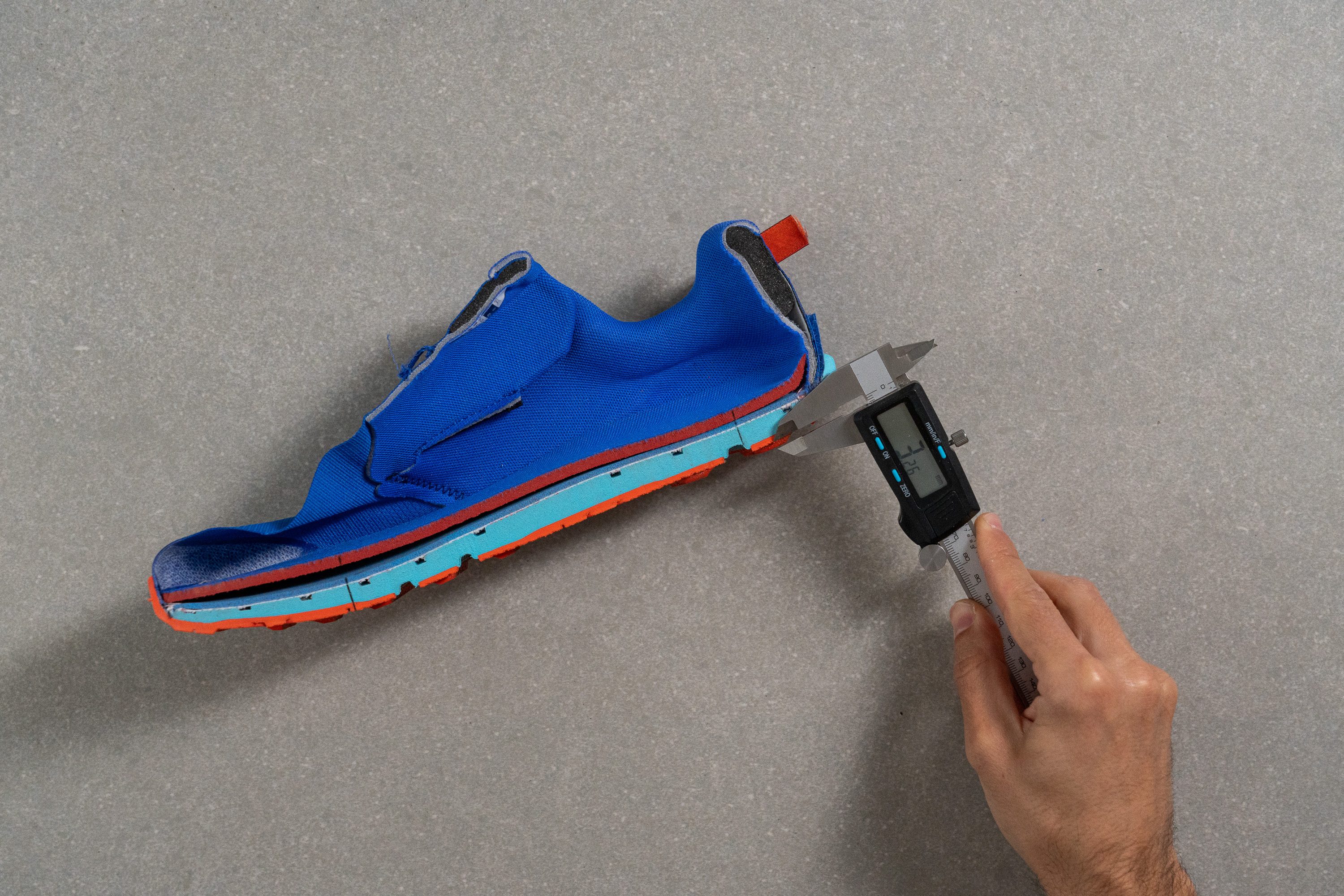
| Superior 6 | 3.3 mm |
| Average | 3.5 mm |
Flexibility / Stiffness
Earlier in this lab review, we discovered the Superior 6 to be incredibly flexible, but we had one final test to conduct in this area—the 90-degree bend test. In this test, we bend the shoe to the desired angle and measure the force required using our force metre.
The result was just 17.7N, confirming this shoe as exceptionally flexible and a joy for those who prefer a natural feel in their stride. This flexibility also makes it outstanding for hiking or casual walking.
This test follows an older methodology, which is why you don't see recently tested shoes in the chart. Results from different methodologies can not be compared.
| Superior 6 | 17.7N |
| Average | 27.1N |
Stiffness in cold (%)
We did the 20-minute freezer test again to see how stiff the shoe gets in cold winter conditions. Afterward, it took 33.3% more effort to bend the shoe, yet it remained quite flexible, needing only 23.6N of force.
| Superior 6 | 33% |
| Average | 32% |
Weight
Turning our attention back to the outsole, it's time for us in the lab to measure the lugs. The Superior features 3.6-mm lugs designed to perform well on various terrains, particularly excelling on easy trails, gravel paths, and fire roads.

However, for muddy trails, we believe the lugs might be a bit short, though they should suffice for occasional use.
Weight
Although the Superior isn't designed as a racing shoe and doesn't have the heft of a tank, we anticipated it to weigh less than 9.6 oz (272g). It's not exactly a letdown, but given its stack height, we expected it to be lighter...
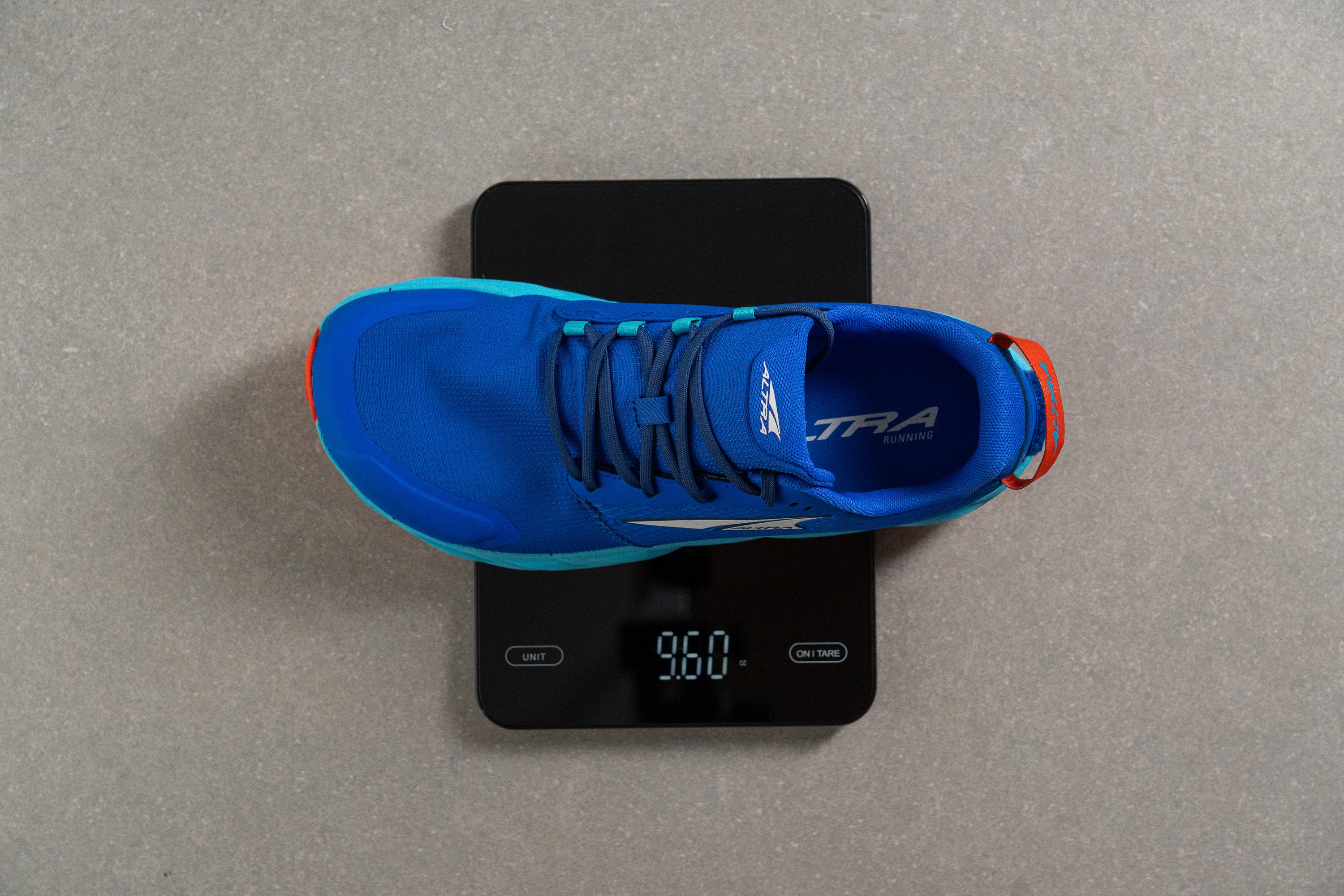
| Superior 6 | 9.6 oz (272g) |
| Average | 10.2 oz (289g) |
Breathability
When we unboxed the Superior 6, it seemed like it might have low breathability due to its engineered upper. However, we were pleasantly surprised to find out we were mistaken.
During our smoke test, we noticed that the Superior 6's design allows heat and moisture to escape, particularly around the tongue area, earning it a top score (5/5) for breathability.
Our second test shed more light—literally. Despite the upper blocking it, which suggested poor breathability, the shoe proved otherwise. This test also revealed that the midfoot is well-structured, promising excellent stability. More on this later.
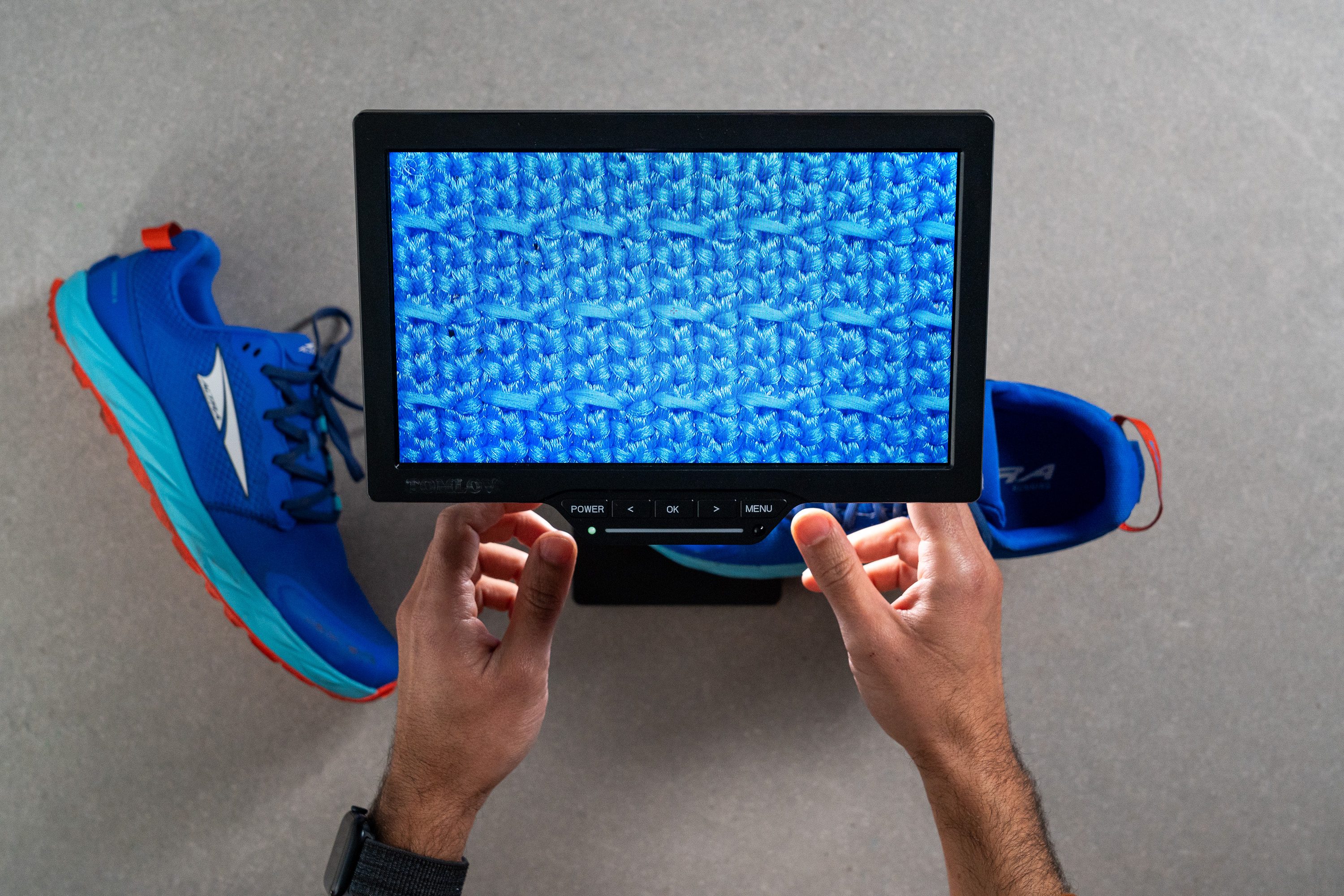
In the lab, we always turn to the microscope for a closer look at the upper. Under magnification, the Superior 6's mesh appeared dense and lacked visible ventilation holes.
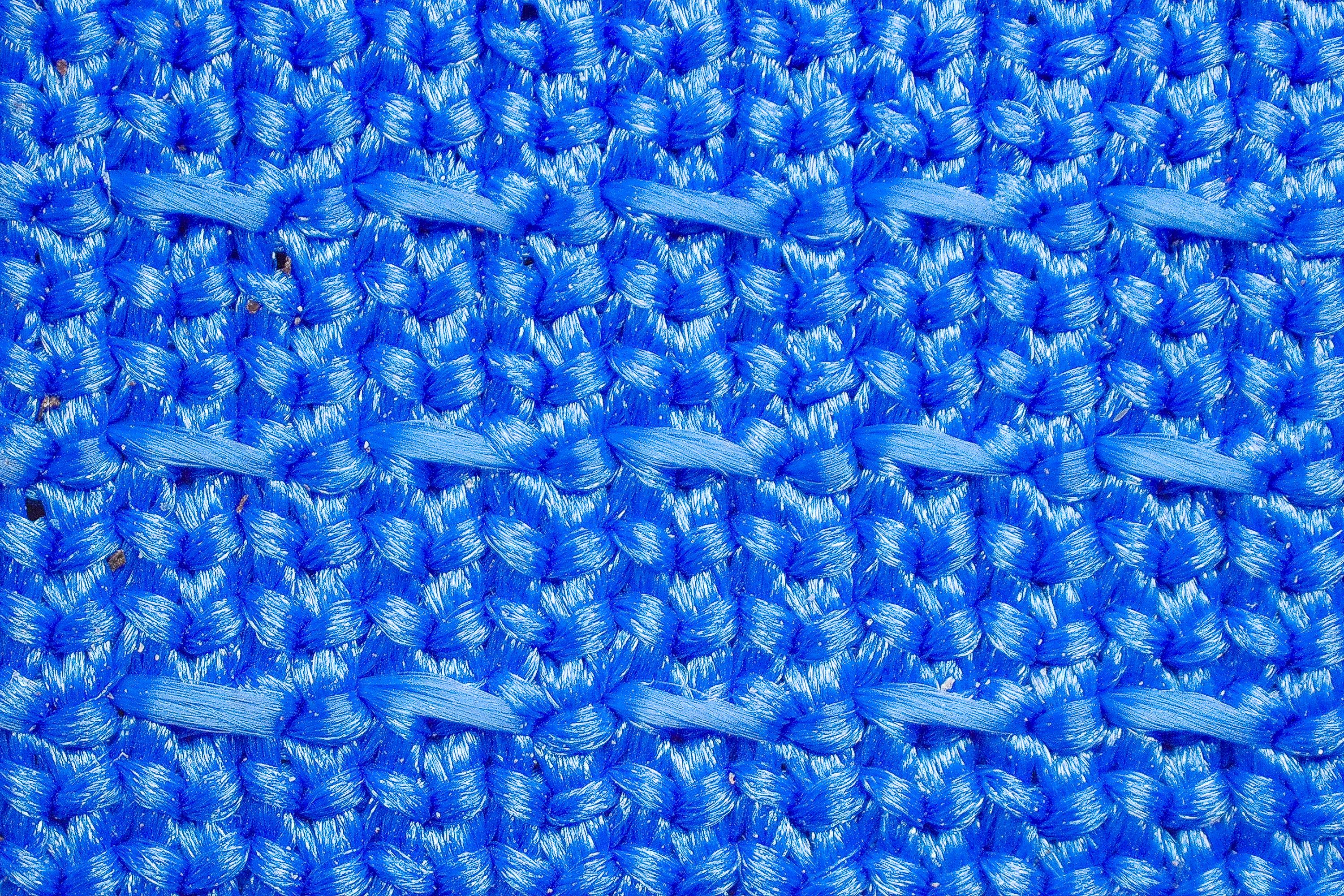
Upon examining the entire upper, we found it to be well-padded for comfort and, as mentioned earlier, notably reinforced in the midfoot to ensure stability and prevent the feet from collapsing sideways.
| Superior 6 | 5 |
| Average | 3.3 |
Stability
Lateral stability test
With its slim stack height and solid midsole, combined with the side reinforcements in the upper we mentioned earlier in this lab review, the outcome was inevitable.
The Superior boasts outstanding stability for a neutral shoe, free from any intrusive features like rigid plastic pieces.
Torsional rigidity
We were happy by how effortlessly the Superior flexed and twisted during our hands-on evaluation, earning it a solid 3 out of 5 score.
Thanks to its inherent stability, Altra's designers were able to keep the shoe flexible, enhancing its agility for sharp turns and adapting to tough terrain. This makes it an excellent choice for steep, downhill singletracks.
| Superior 6 | 3 |
| Average | 3.6 |
Heel counter stiffness
The heel counter is exceptionally comfortable and flexible, making the Superior a treat for anyone requiring a soft heel area to prevent Achilles tendon irritation. We gave it a 2 out of 5 rating.
| Superior 6 | 2 |
| Average | 3 |
Midsole width - forefoot
Now, let's discuss the shoe's dimensions. Given its low profile and close connection to the ground, we think designing a wide shoe is unnecessary and not worth the added weight.
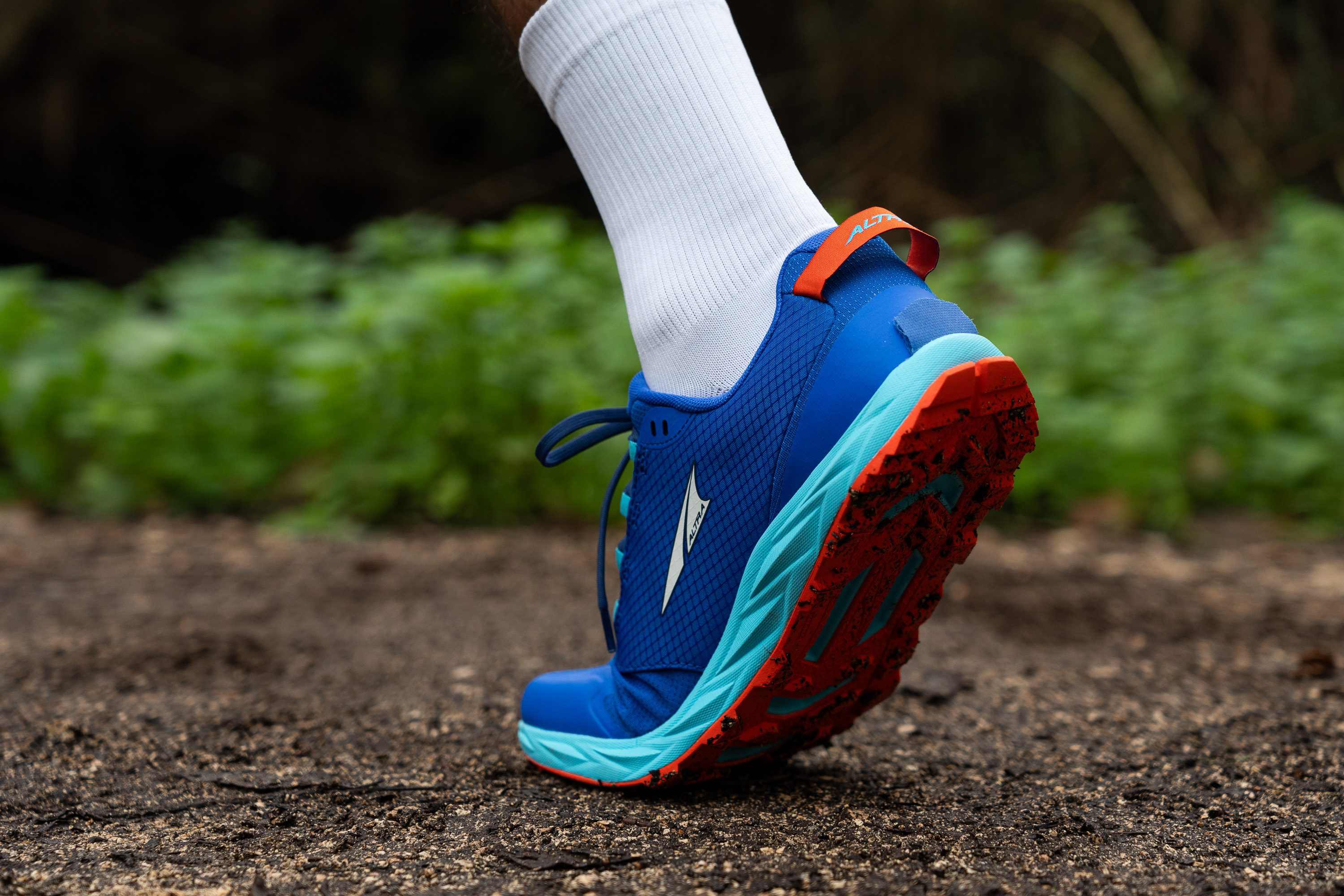
The Superior 6, measuring 113.0 mm in the widest part of the forefoot, is average in width, which works well for this shoe.
| Superior 6 | 113.0 mm |
| Average | 112.8 mm |
Midsole width - heel
We noticed that the heel follows the same design approach, striking a balance without being too narrow or too wide, measuring just 86.1 mm.
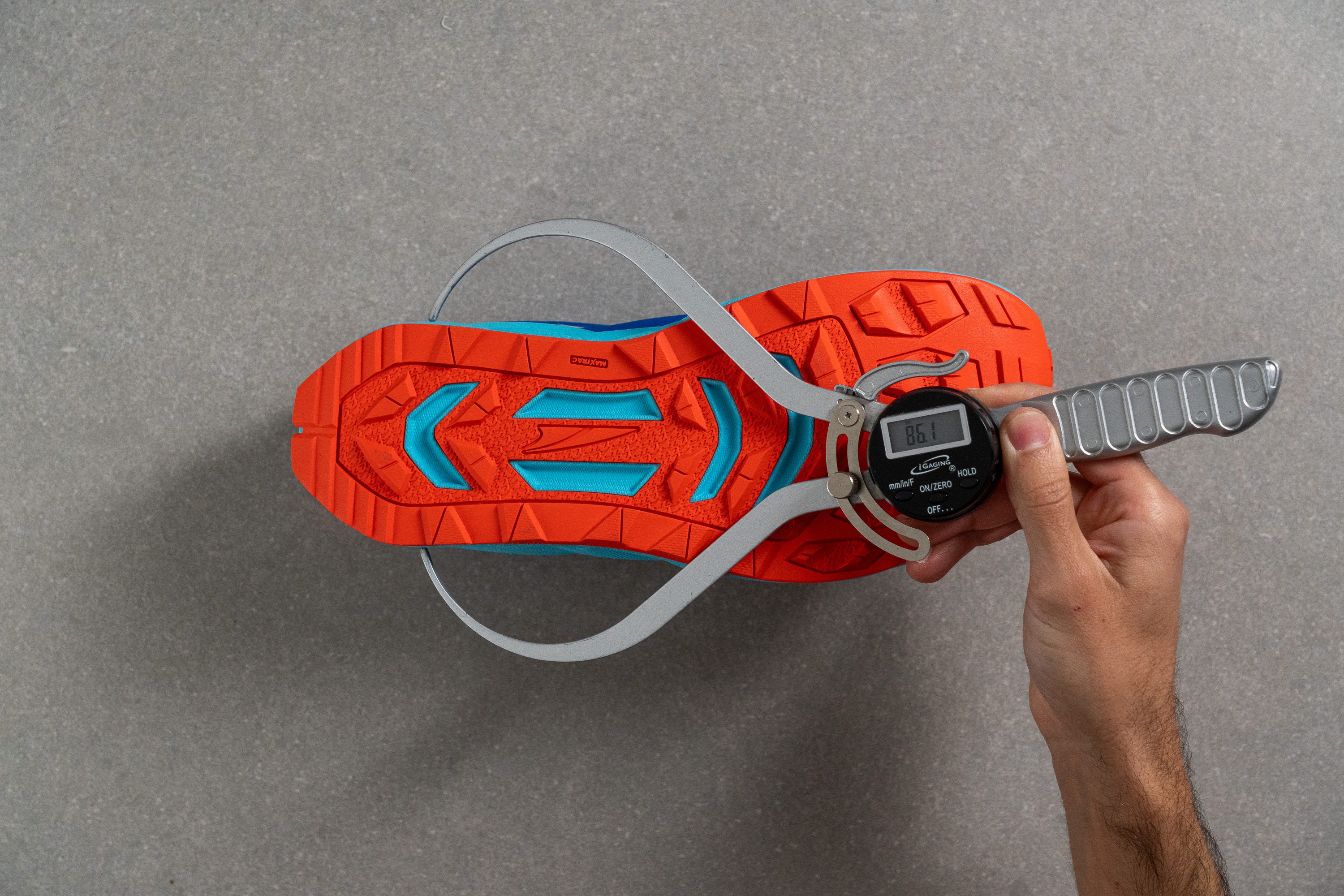
| Superior 6 | 86.1 mm |
| Average | 89.9 mm |
Durability
Toebox durability
Now we're putting the shoe through the wringer with our Dremel to check its durability across three tests, kicking things off with the upper.
The results were disappointing, to say the least. This means a dismal score of 1 out of 5.
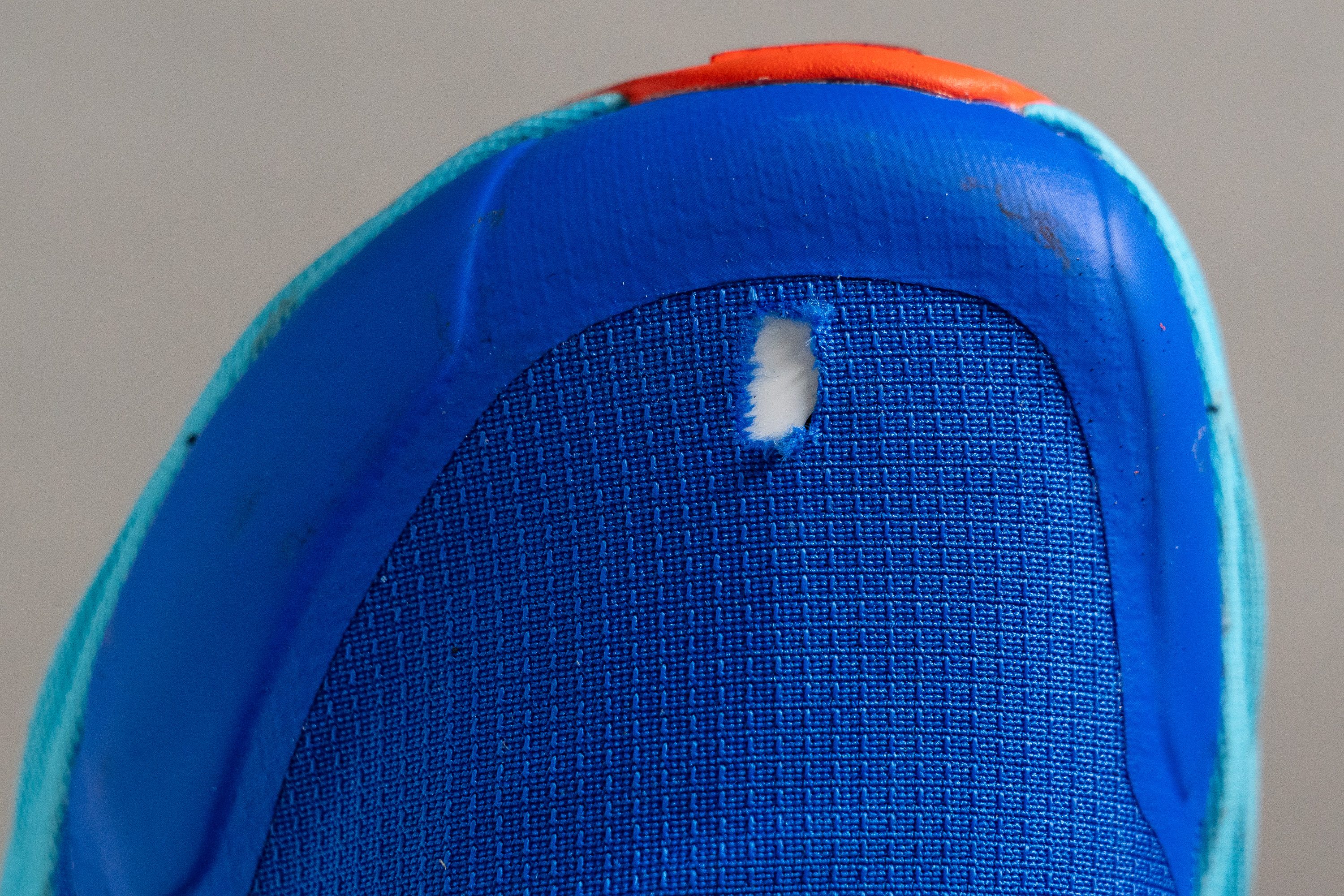
| Superior 6 | 1 |
| Average | 3.1 |
Heel padding durability
Things hardly seemed like they could get worse, yet the heel padding wasn't much of an improvement either.
Following our Dremel test, we ended up with what we'd consider a disappointing 2 out of 5 rating. Although not quite as bad as the previous outcome, Altra really needs to step up its game in these areas.
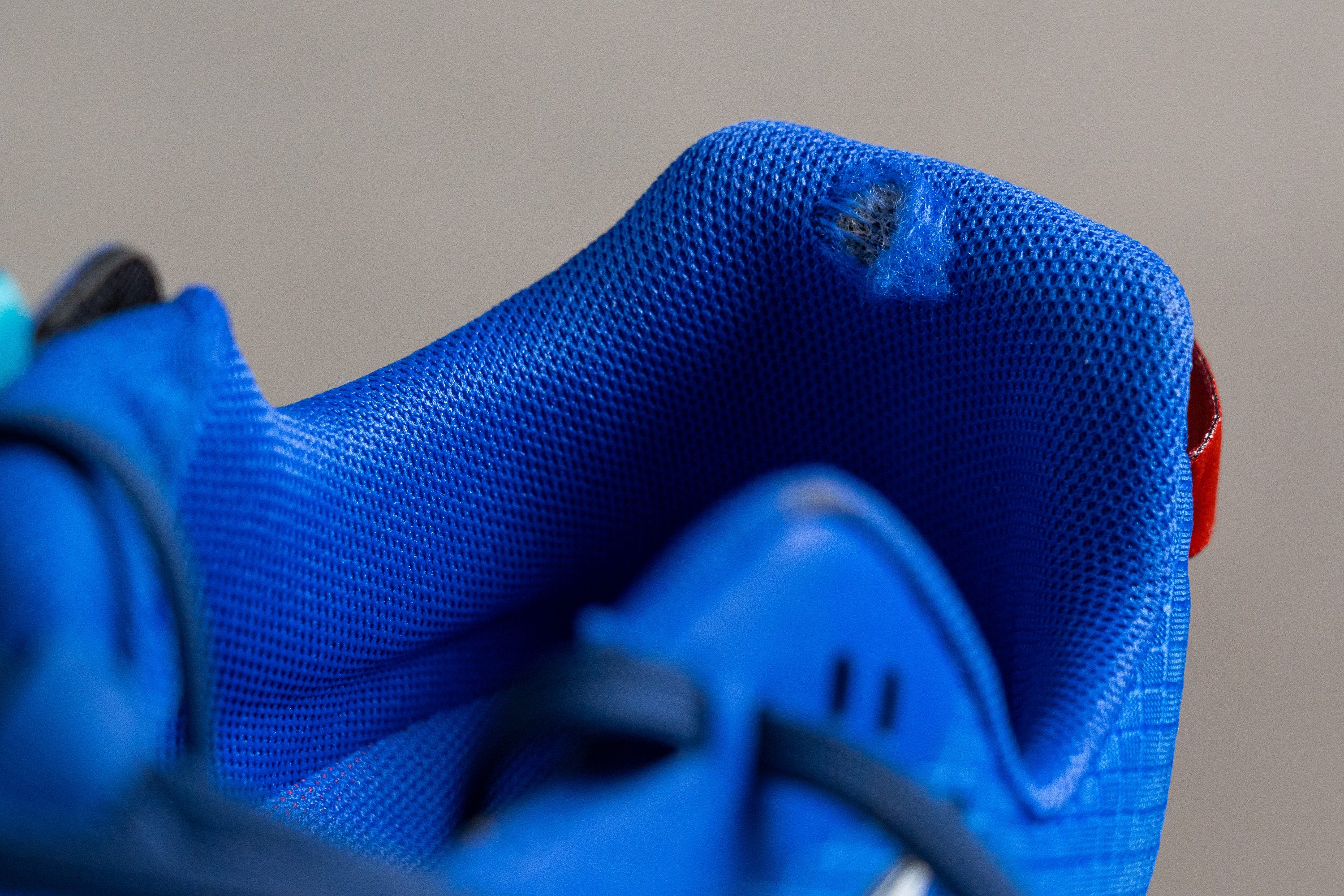
| Superior 6 | 2 |
| Average | 3 |
Outsole hardness
Now let's talk about the outsole, beginning with its hardness.
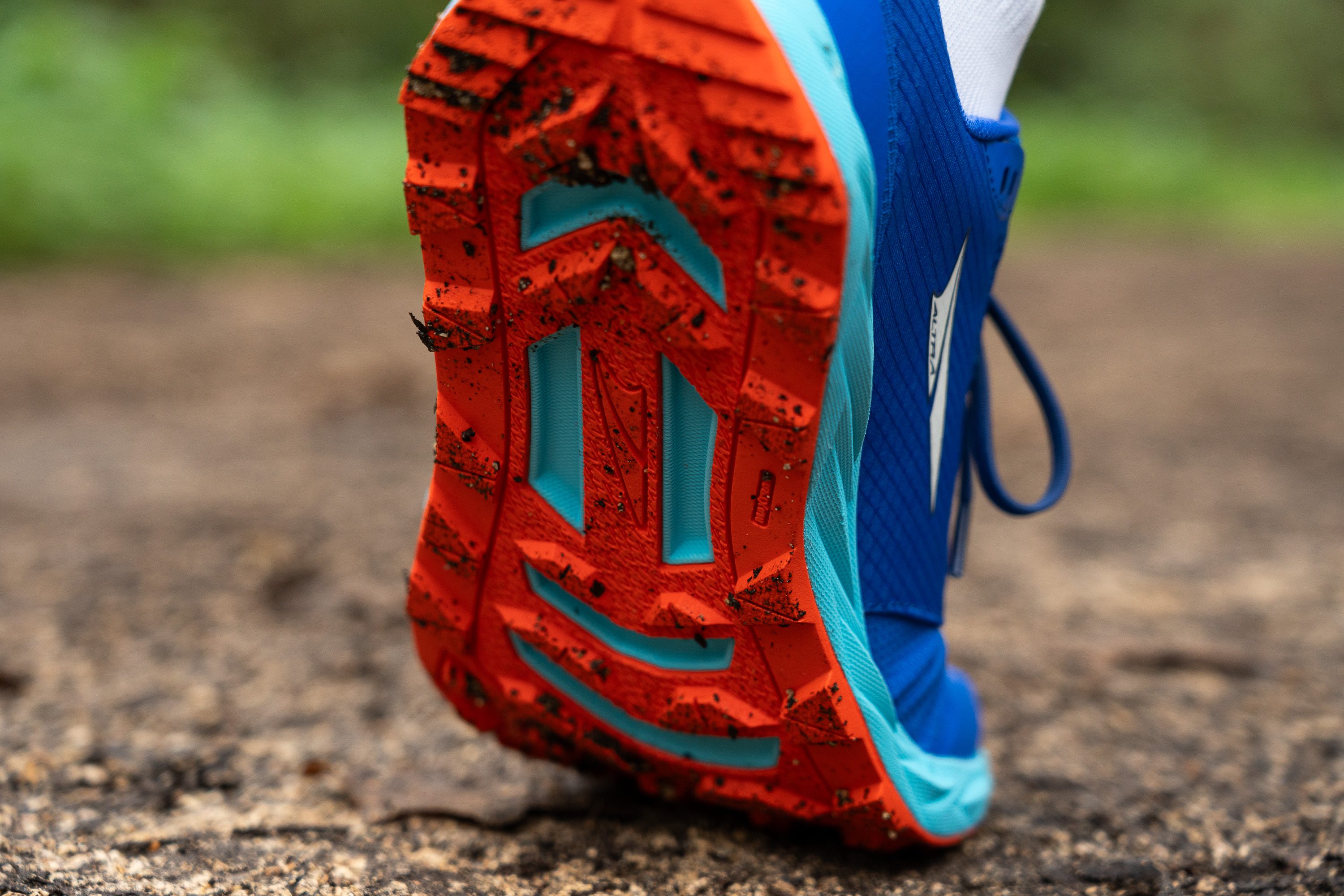
With a measure of 91.0 HC, Altra clearly aimed for a tough formulation with its MaxTrac rubber. Let's find out if it lives up to our expectations.
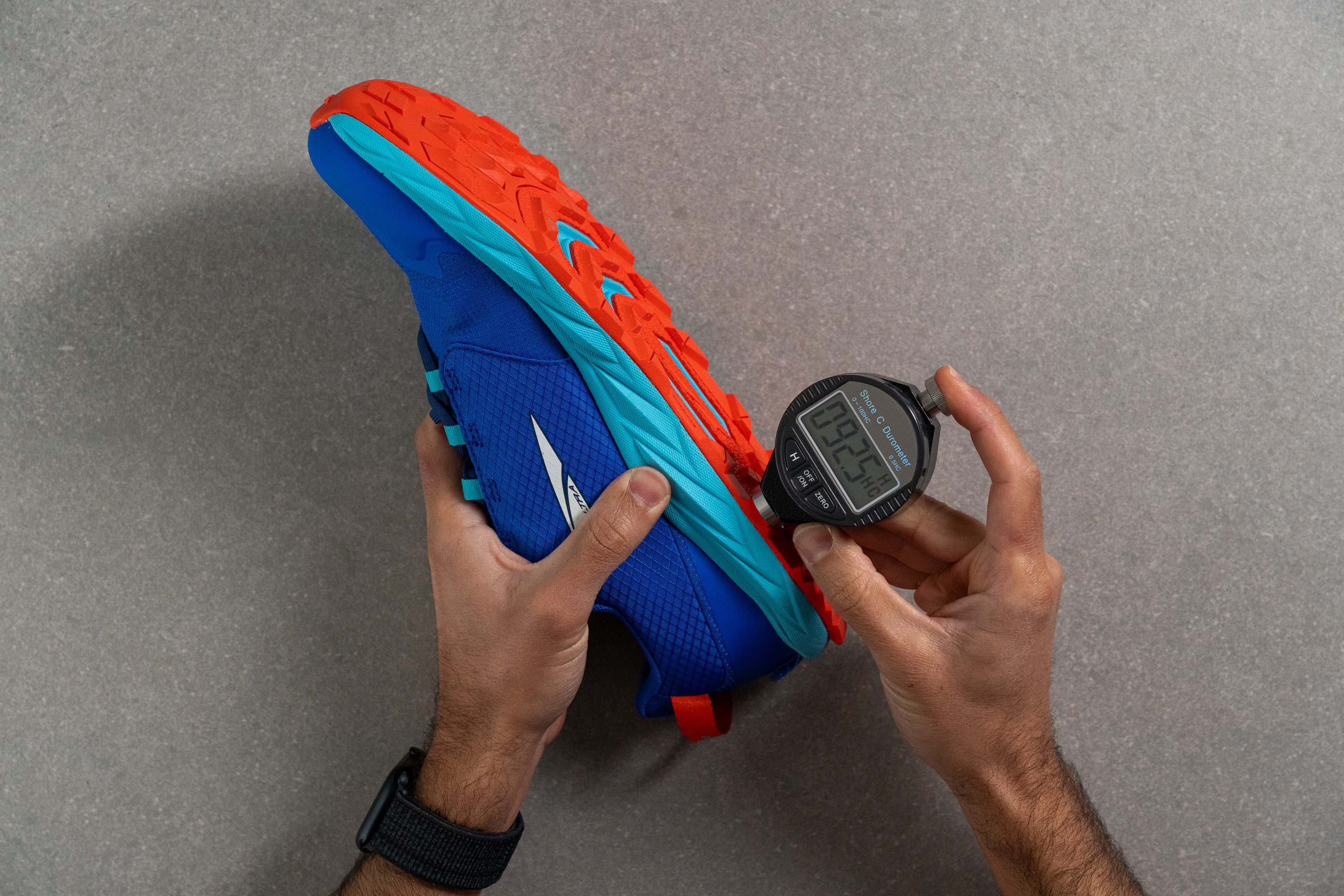
| Superior 6 | 91.0 HC |
| Average | 85.8 HC |
Outsole durability
In a final opportunity for the Superior to demonstrate true durability, it certainly rose to the occasion, all thanks to the rugged MaxTrac rubber.
Following our third and conclusive Dremel test, we observed a mere 0.6-mm indentation—an encouraging sign for those who enjoy long-lasting outsoles in trail shoes.
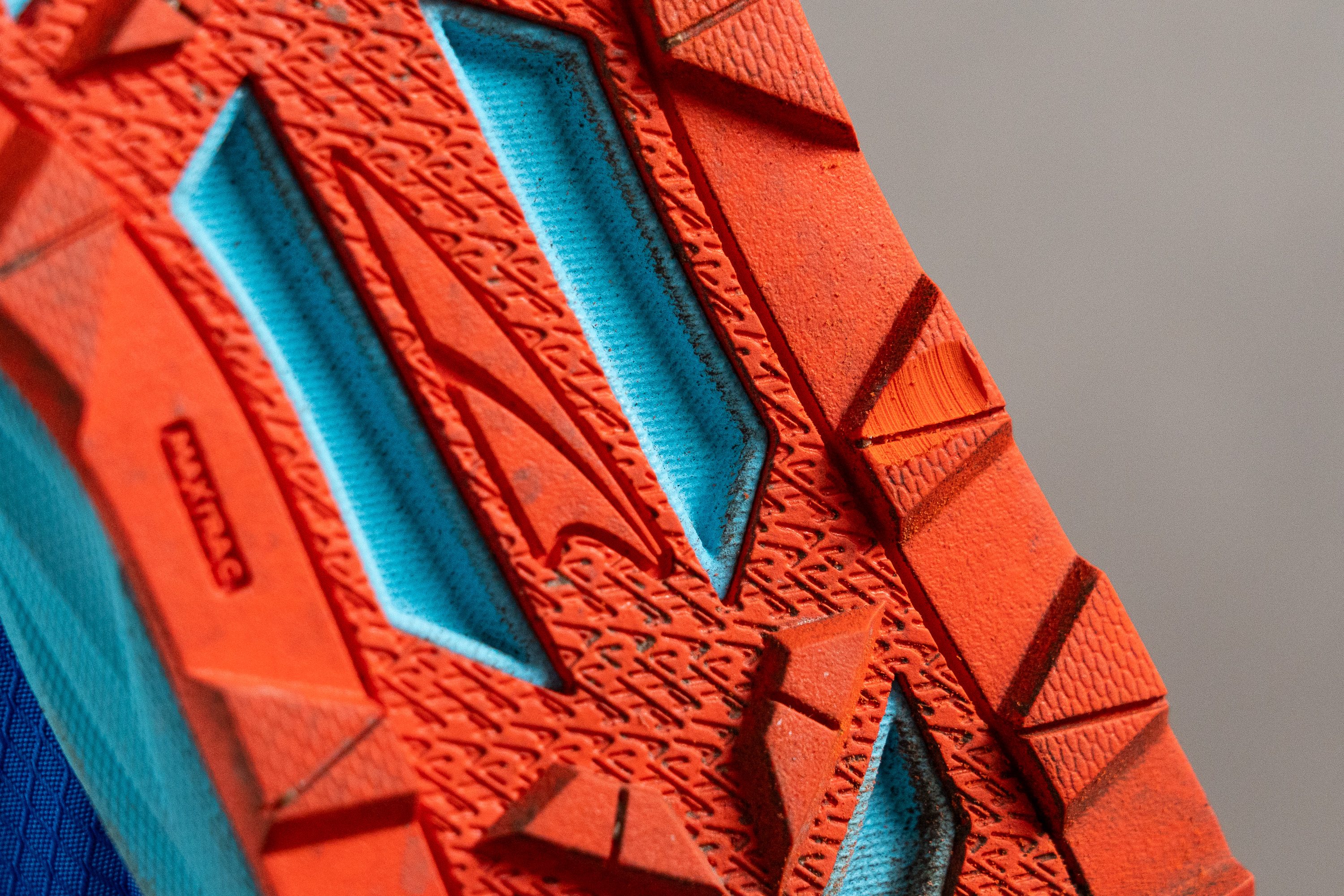
| Superior 6 | 0.6 mm |
| Average | 0.9 mm |
Outsole thickness
If outsole durability tops your list of concerns, we believe the Superior will surely impress you, provided you're okay with its less durable upper, of course.
With a 3.0 mm outsole plus the lugs, even the most demanding trail runners will struggle to wear down the MaxTrac rubber.
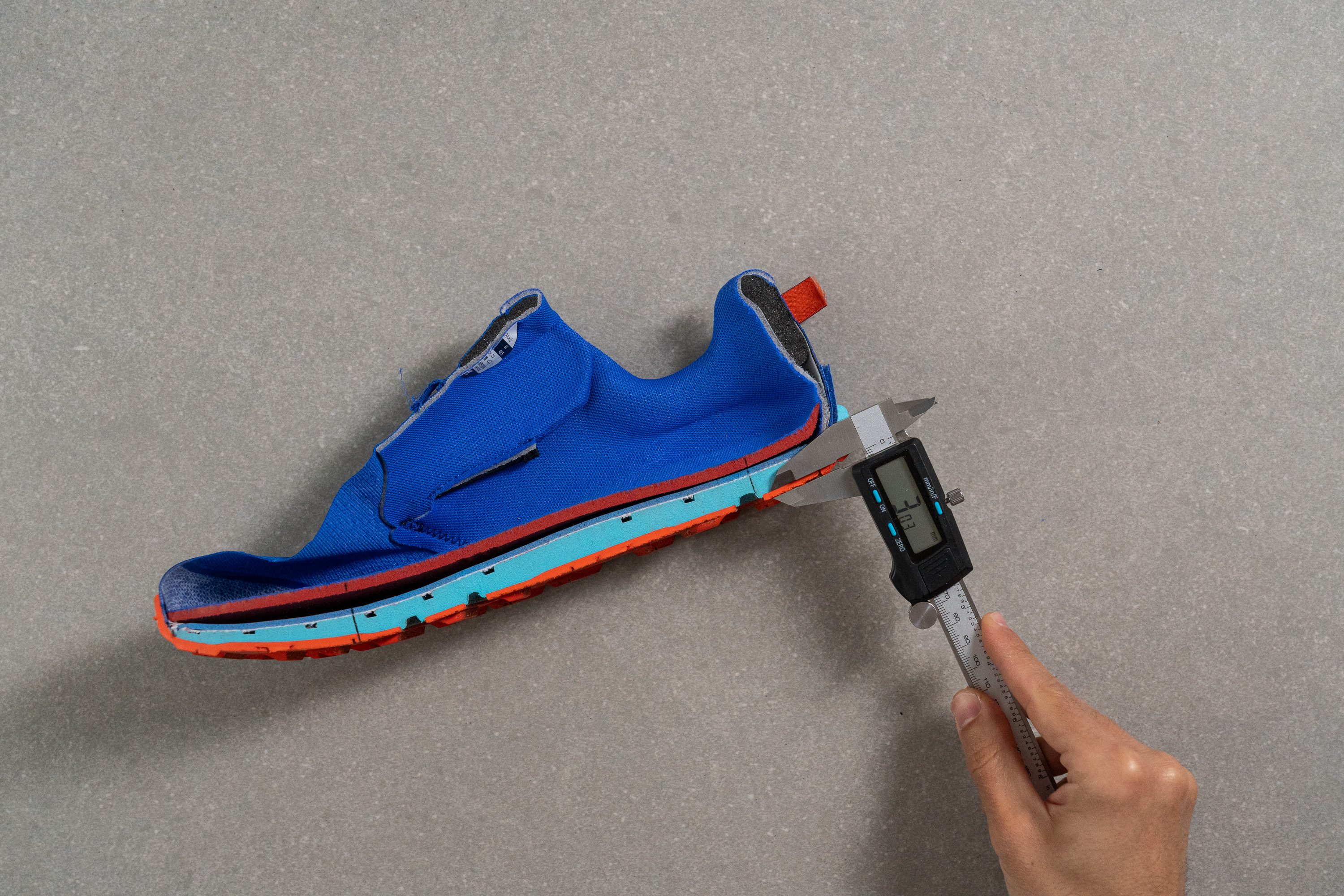
| Superior 6 | 3.0 mm |
| Average | 2.2 mm |
Misc
Insole thickness
The insole is crafted from EVA and has a standard thickness of 4.4 mm, making it feel comparable to most shoes on the market.
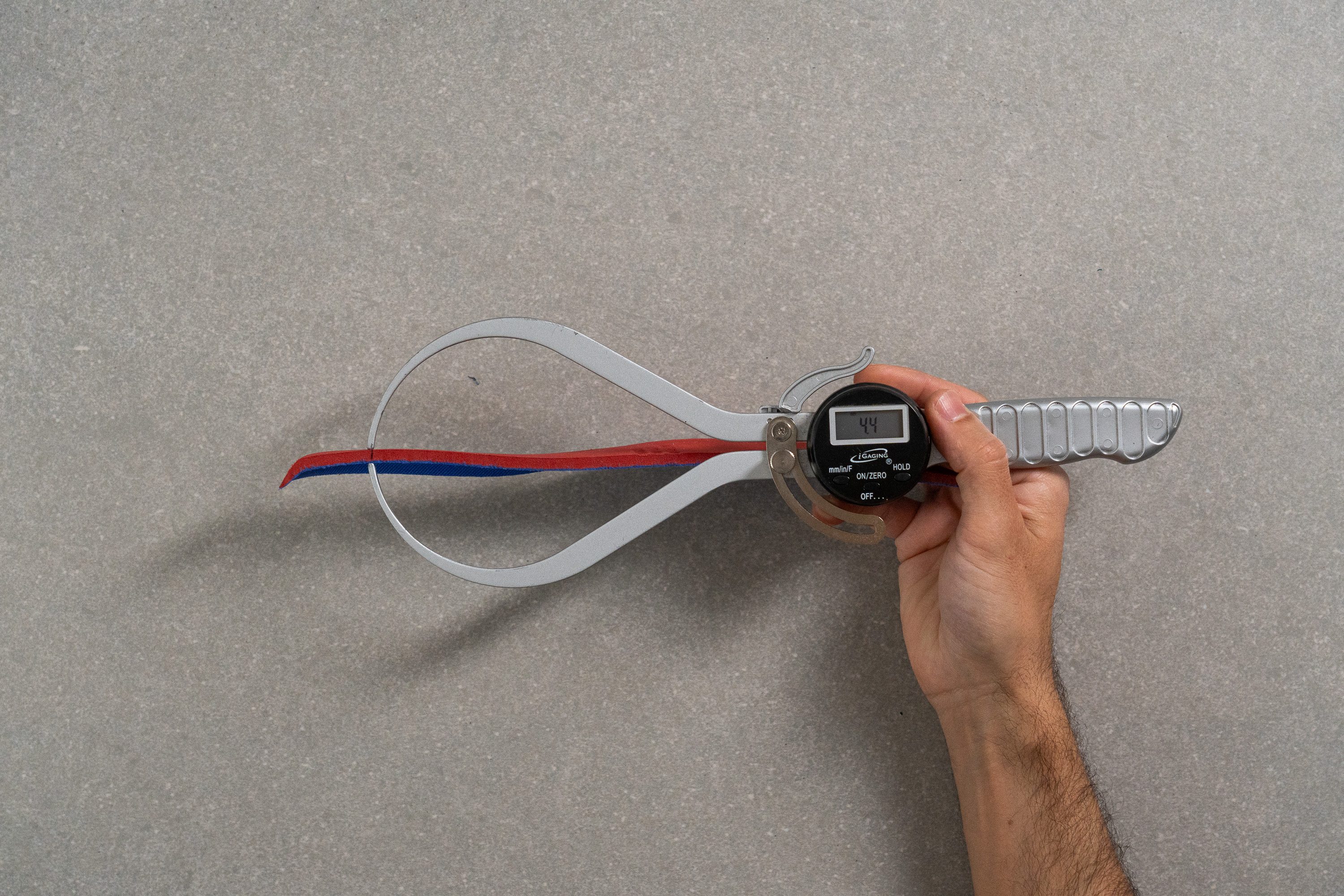
| Superior 6 | 4.4 mm |
| Average | 4.7 mm |
Removable insole
The insole isn't glued down, so you can easily change it. But because of the unique, foot-shape design of the toebox means most OTC orthotics won't fit this Altra just right. You might need to get a custom-made one.
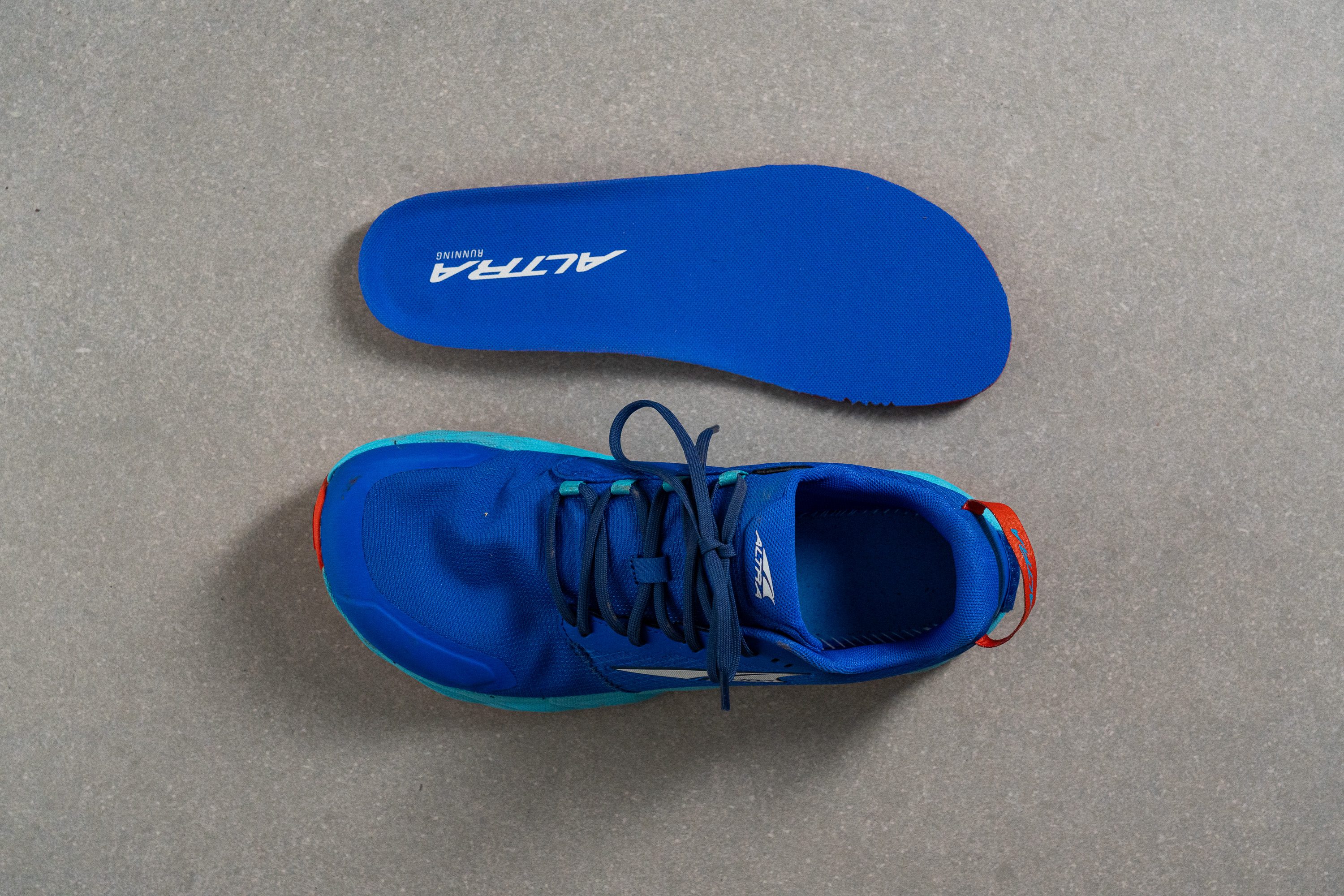
| Superior 6 | Yes |
Midsole softness in cold (%)
Based on its top-notch breathability score, this shoe might not be the ideal choice for winter runs.
However, if you're considering it for cold weather, our tests showed that after spending 20 minutes in the freezer, the foam became 26.6% firmer, making it feel almost like titanium under your feet.
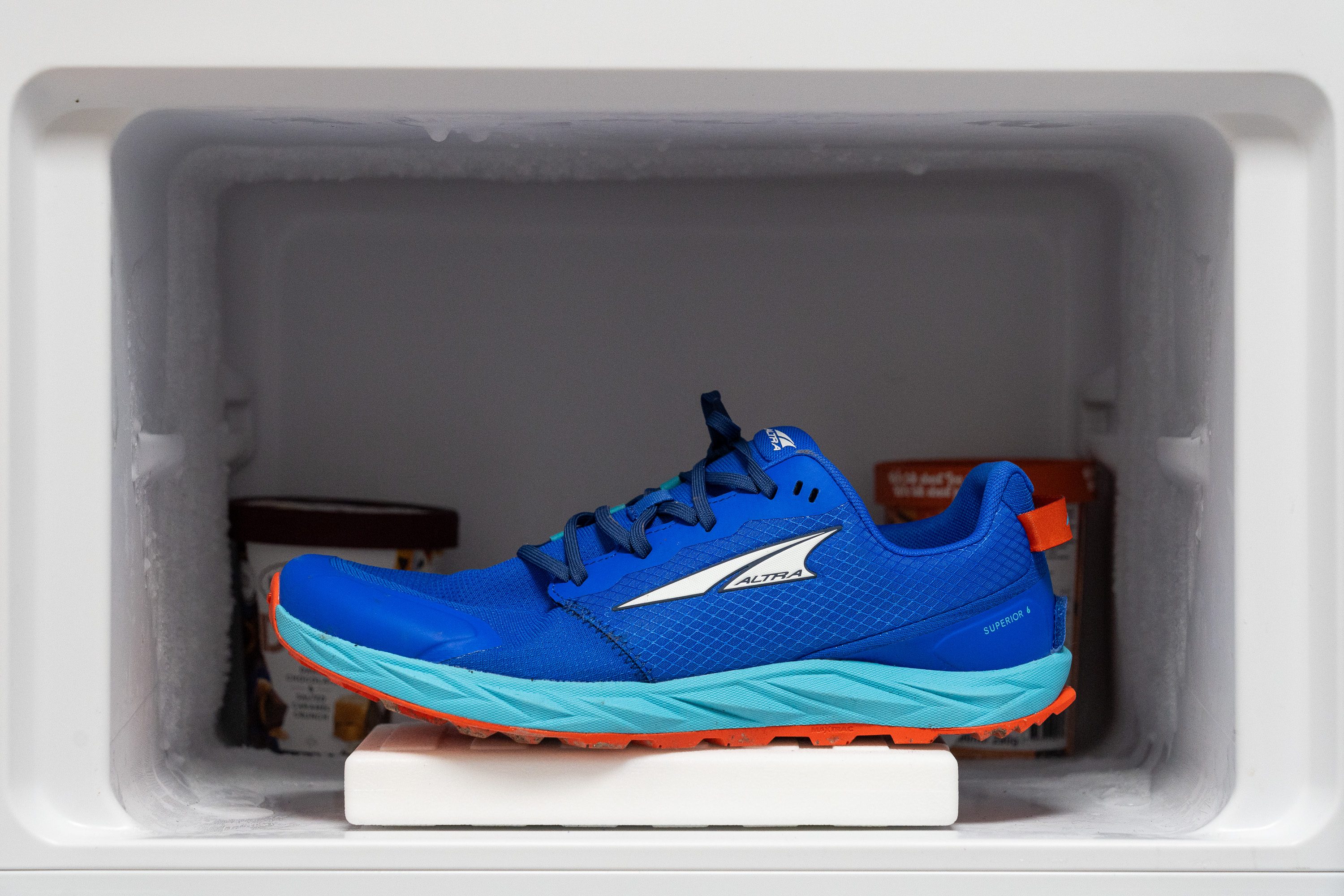
| Superior 6 | 27% |
| Average | 26% |
Reflective elements
The Superior 6 doesn't have any reflective features. But at just £130, that's not a big deal.
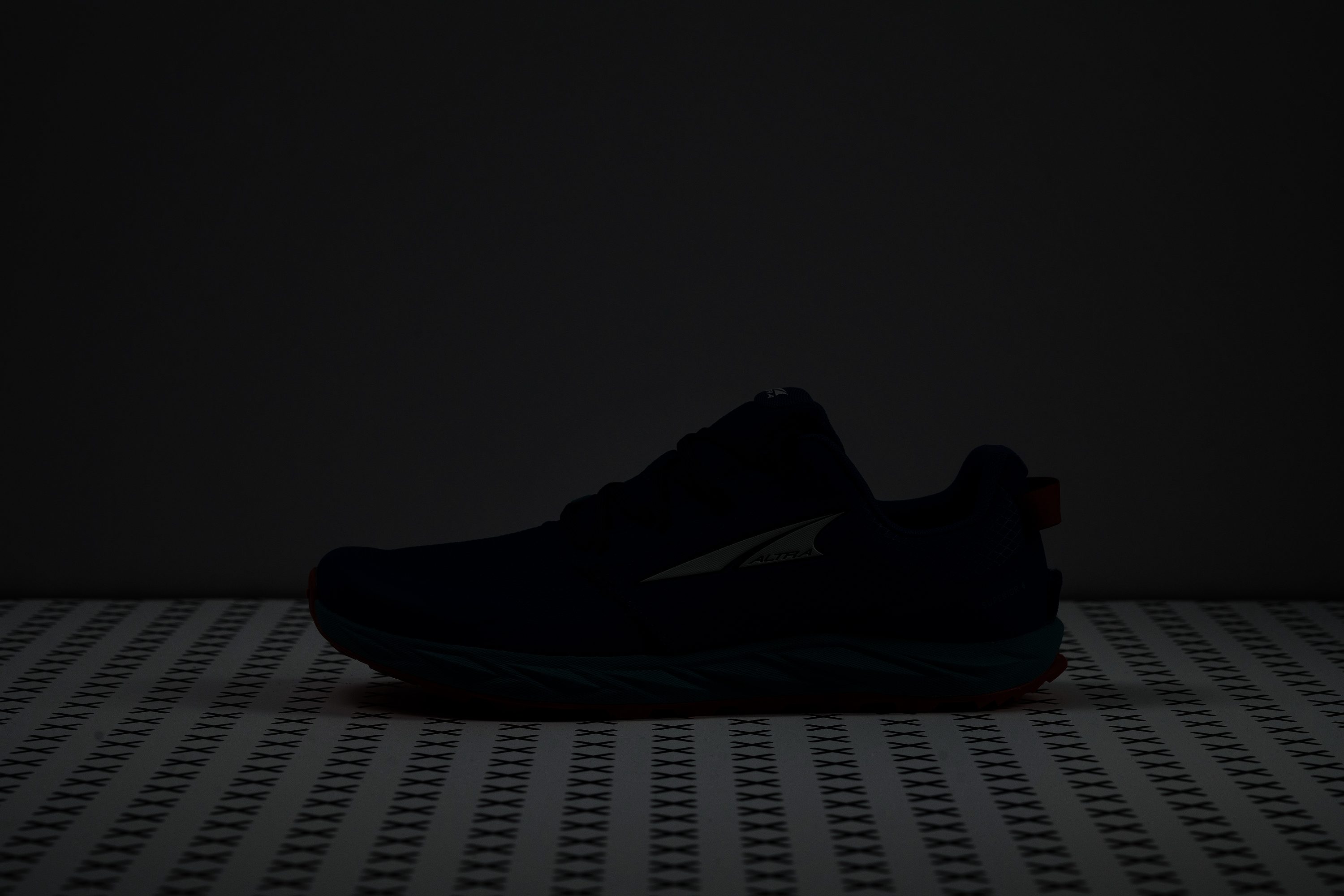
| Superior 6 | No |
Tongue padding
The 6.9-mm tongue is arguably the highlight of this shoe, featuring just the right amount of padding in the perfect spot.
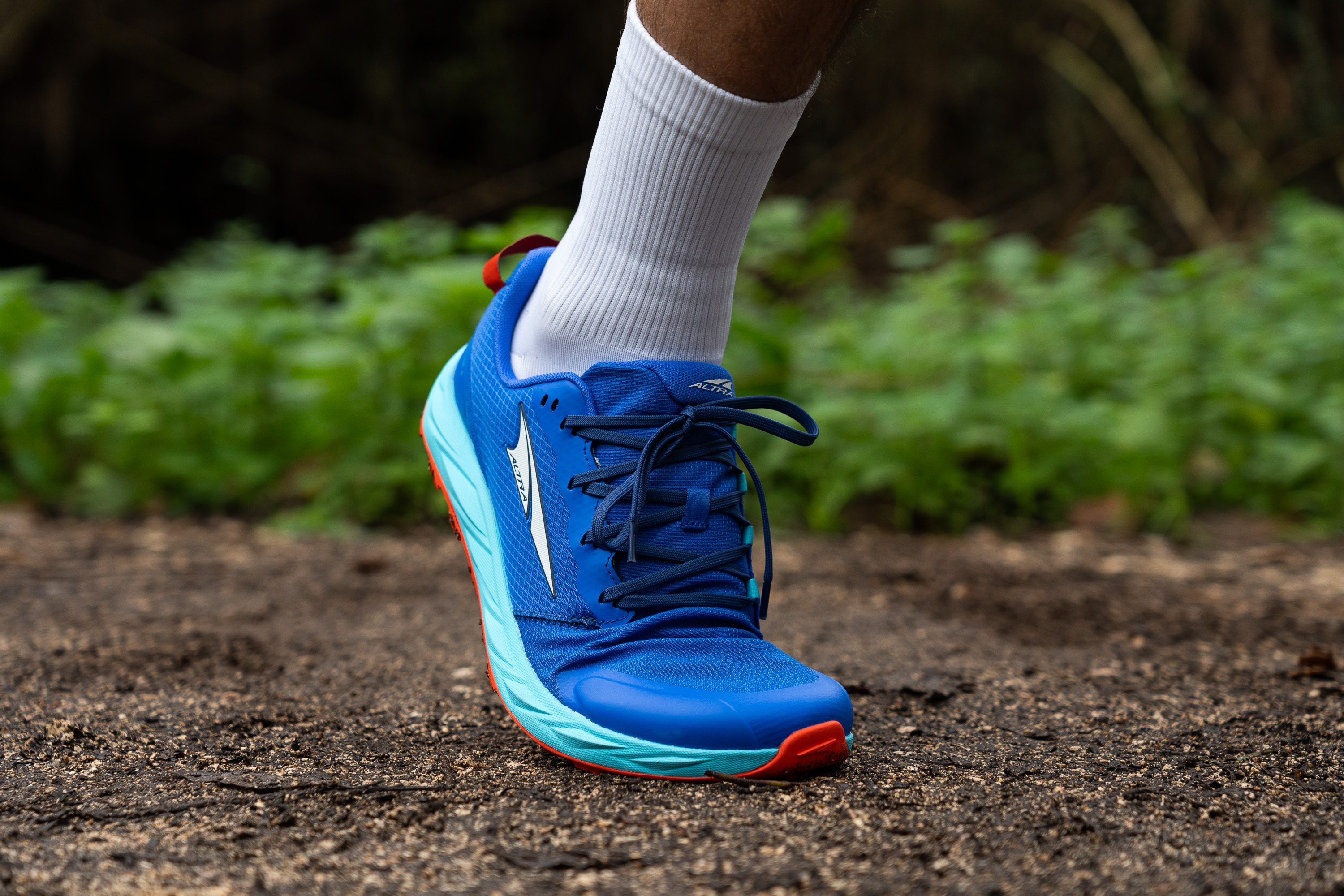
It strikes a brilliant balance—not so much that it becomes heavy, but enough to ensure it doesn't compromise on comfort.
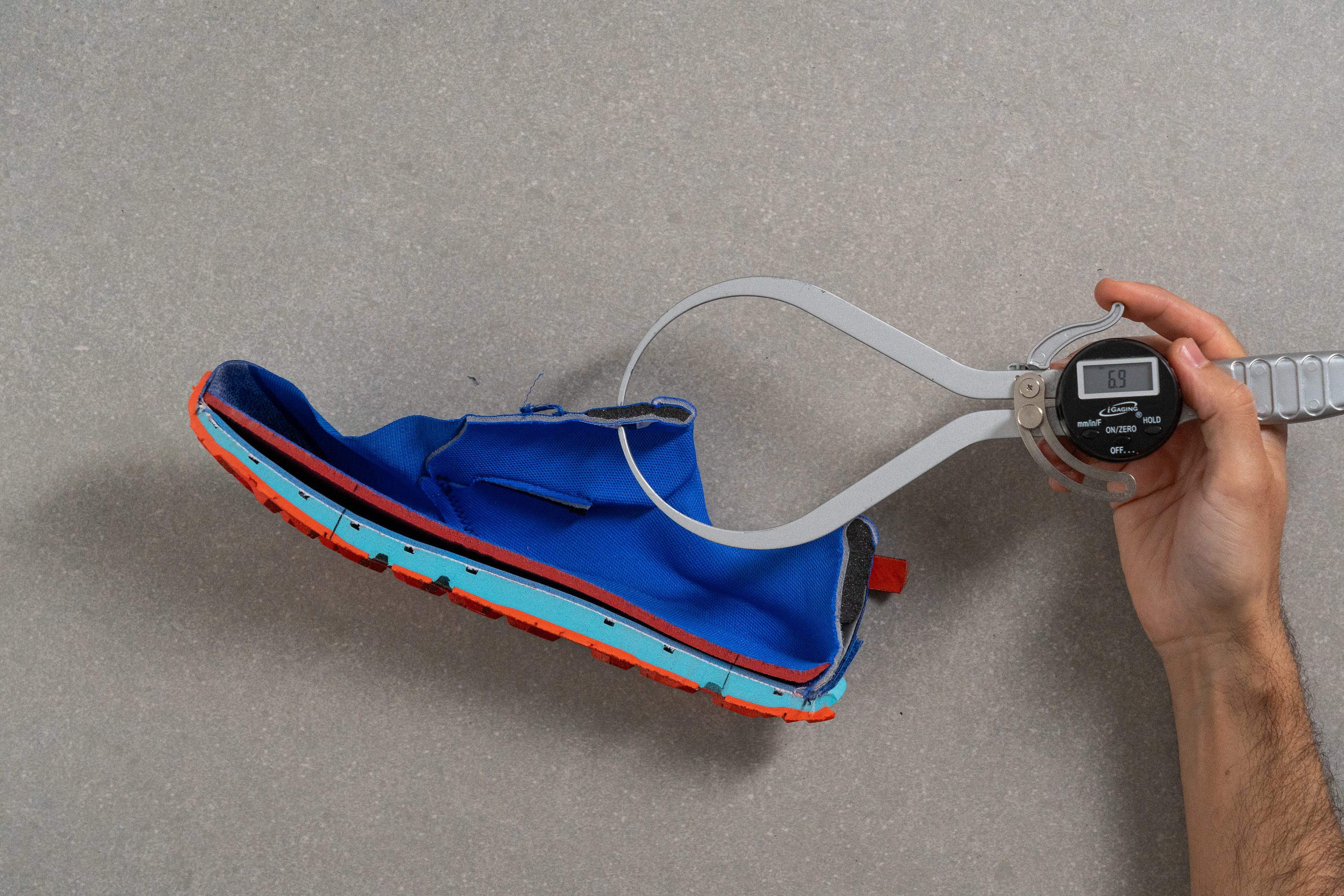
| Superior 6 | 6.9 mm |
| Average | 6.4 mm |
Tongue: gusset type
We discovered that the tongue is securely attached to the sides, a delightful surprise for a shoe priced at £130. Typically, we encounter non-gusseted tongues in this price bracket, so this feature is a noteworthy upgrade.
The tongue also stands out from most shoes, as it's seamlessly integrated with the upper, blending smoothly into the toe box. This design is particularly good for a trail shoe, as the combination with the gusset effectively blocks debris and small rocks from entering the shoe.
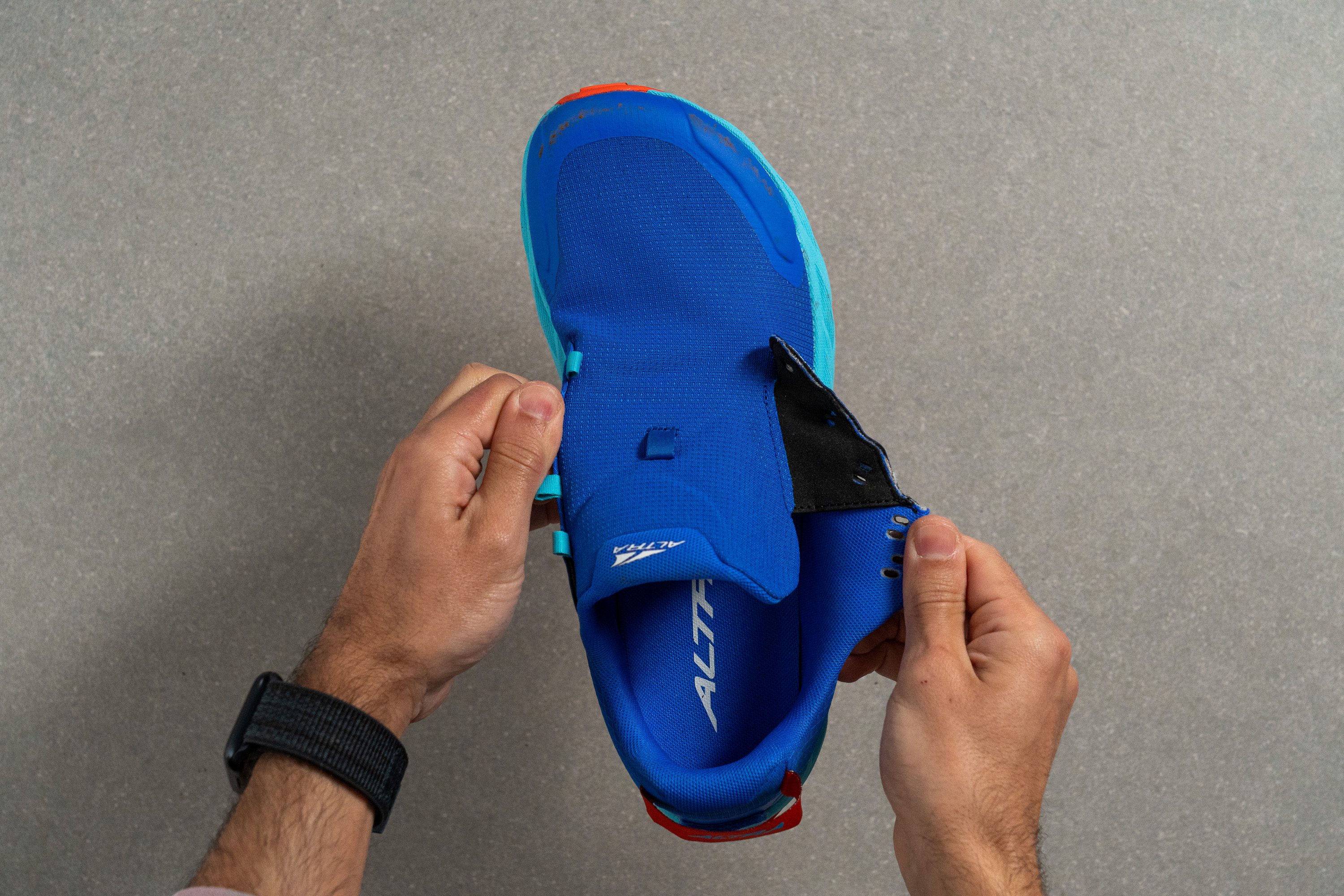
| Superior 6 | Both sides (full) |
Heel tab
The heel on the Superior 6 sports a huge horizontal tab. Normally, we'd call this kind of thing a finger loop (singular), but this one's got space for at least three fingers!
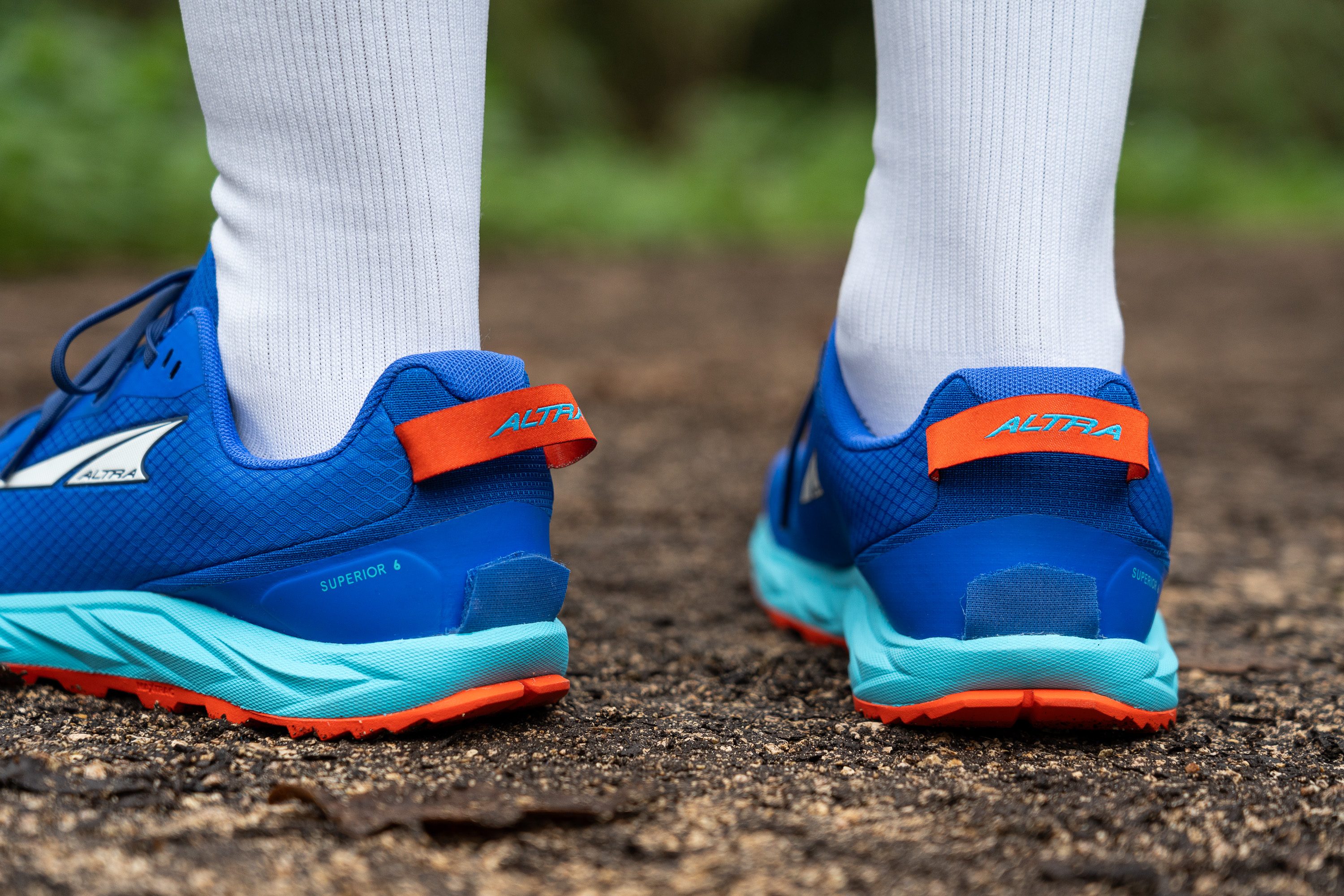
| Superior 6 | Finger loop |

